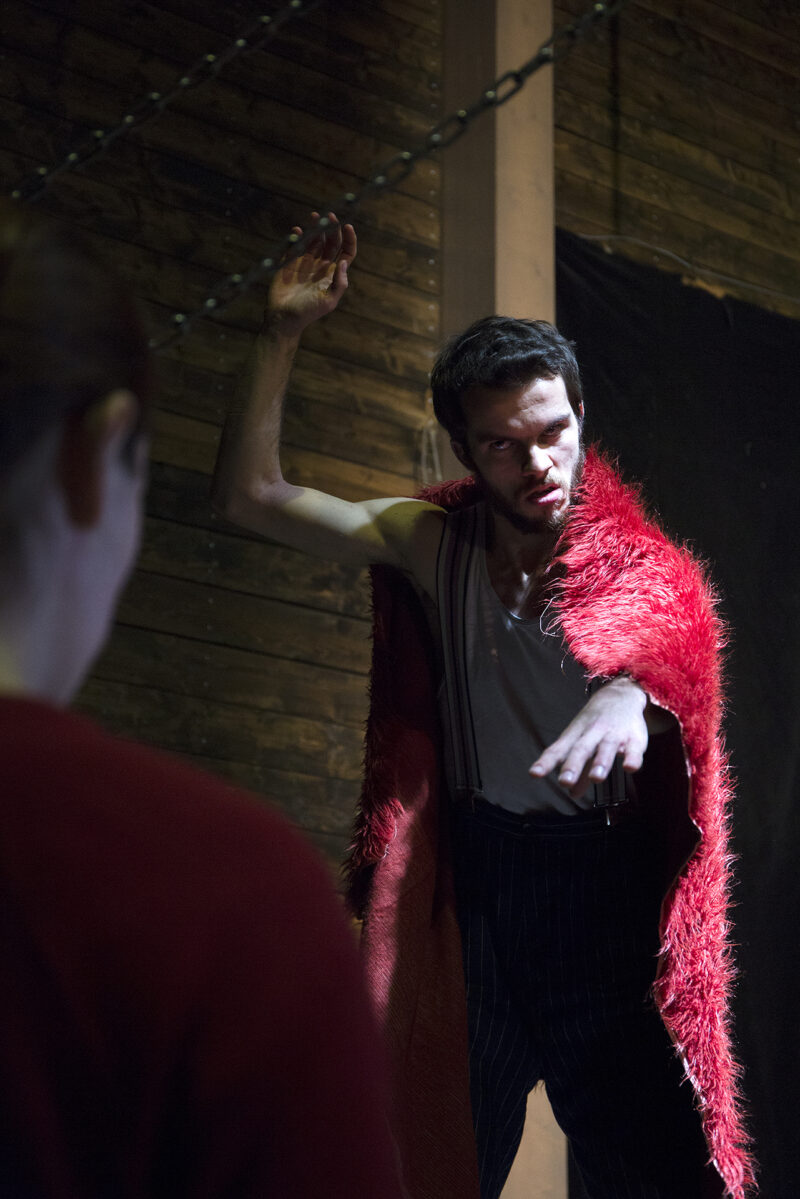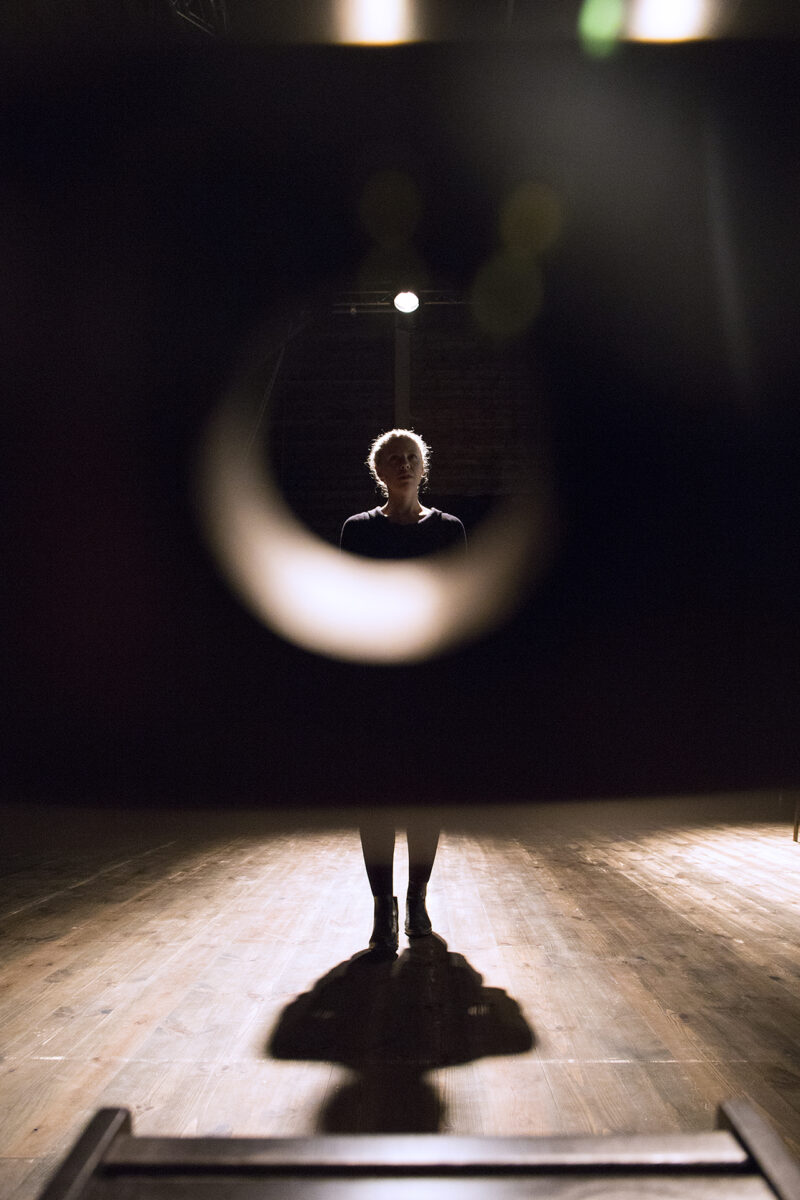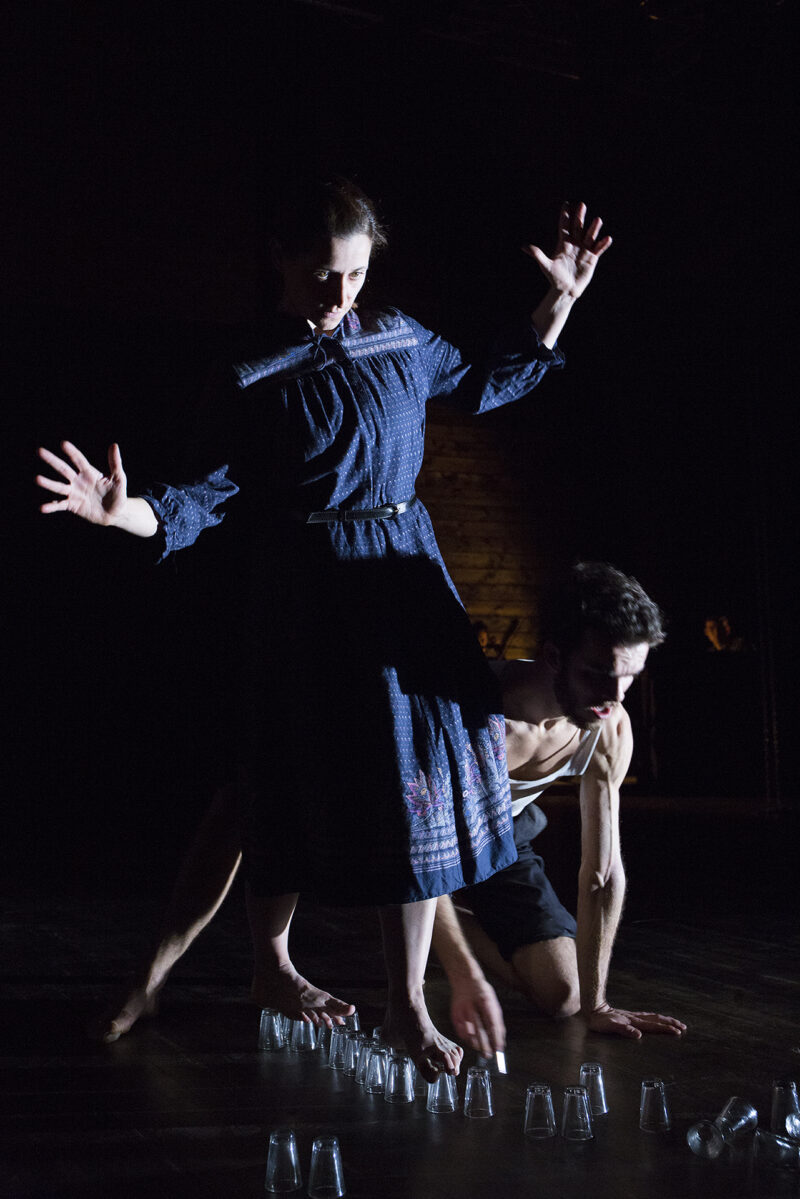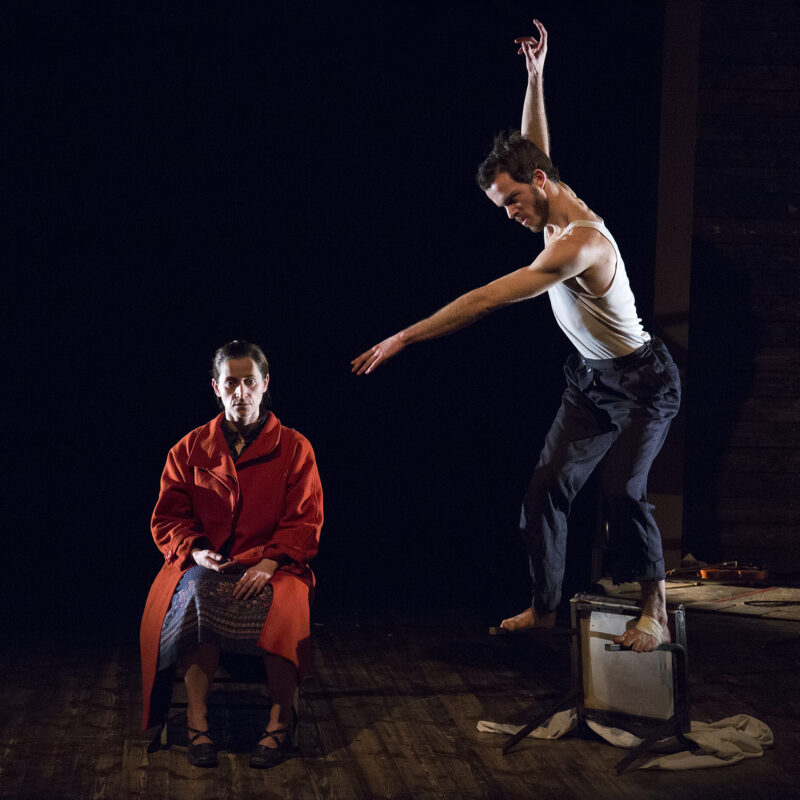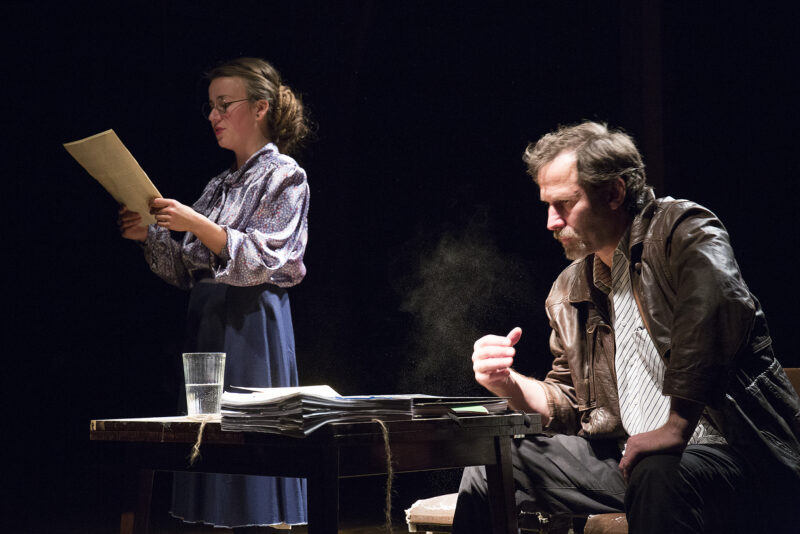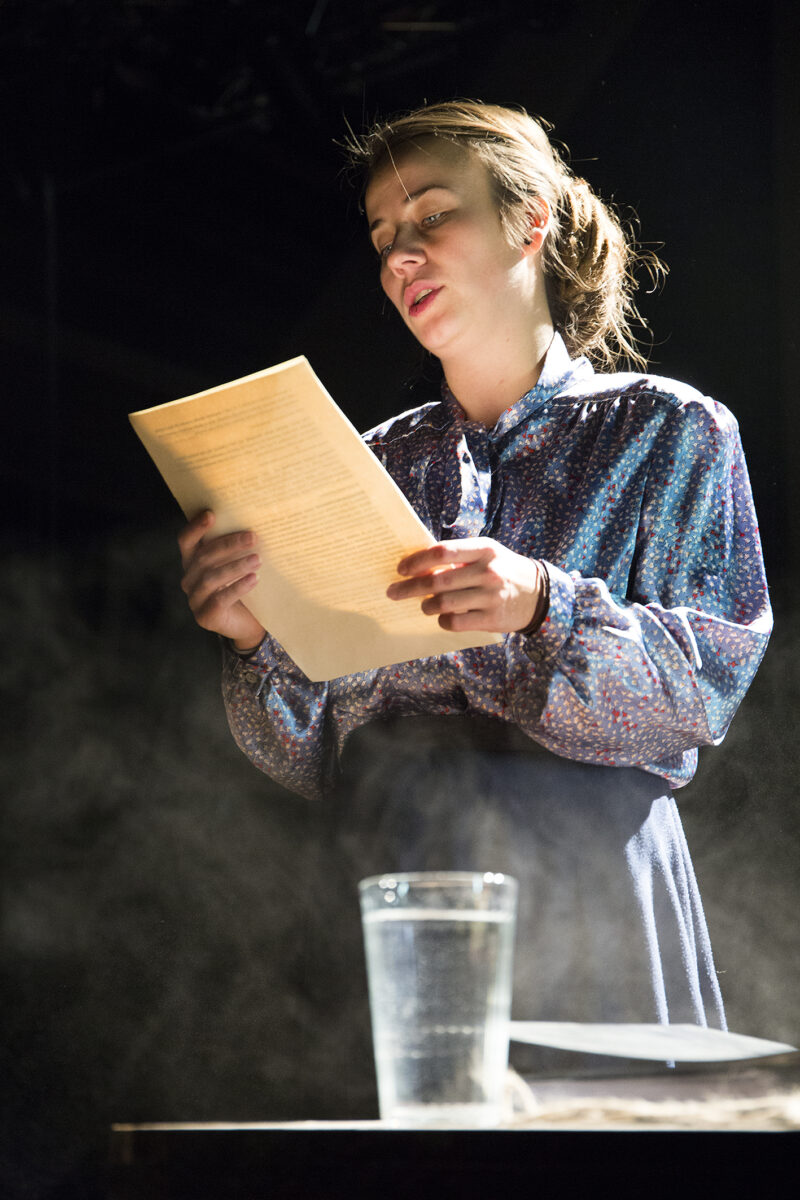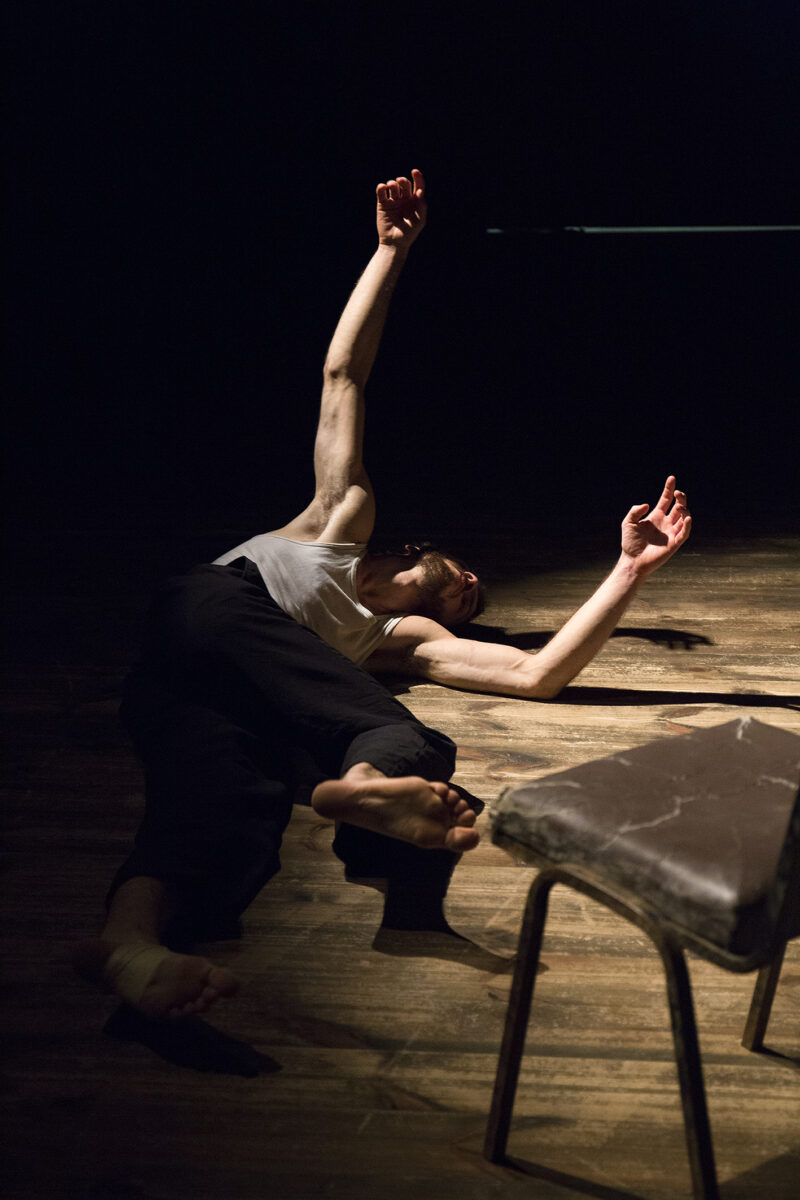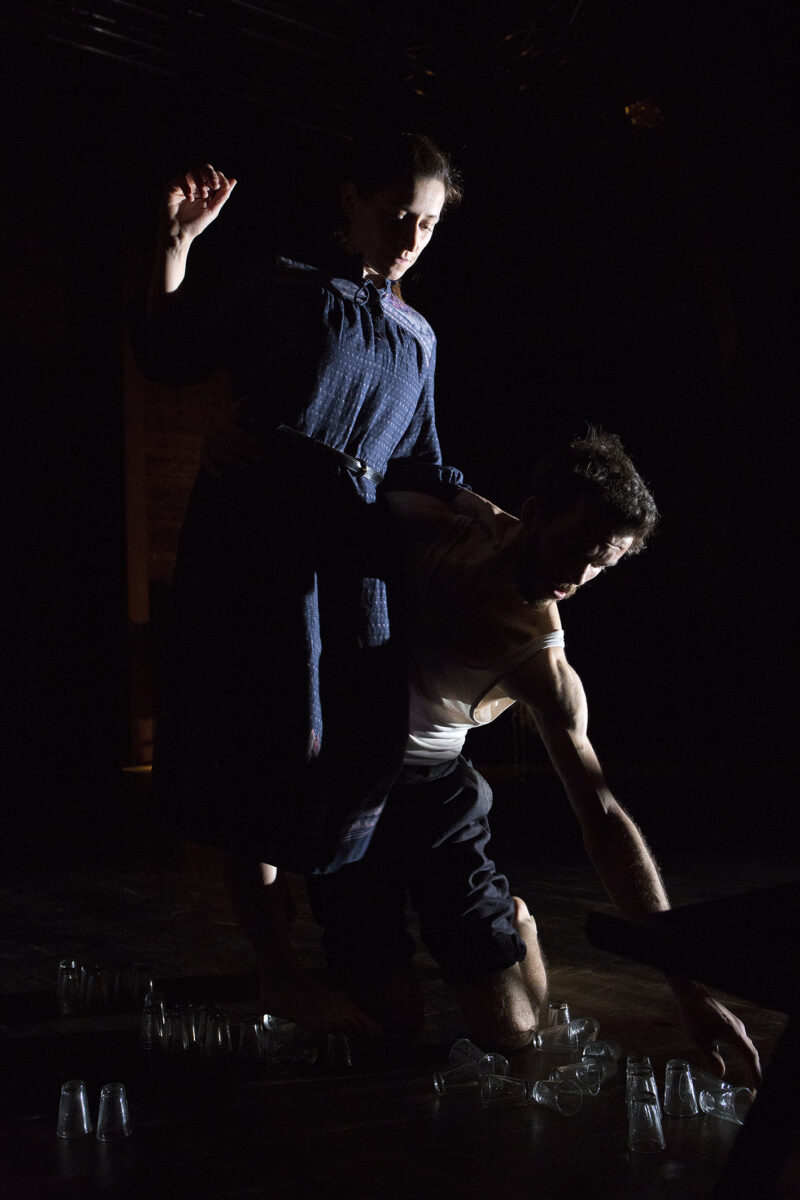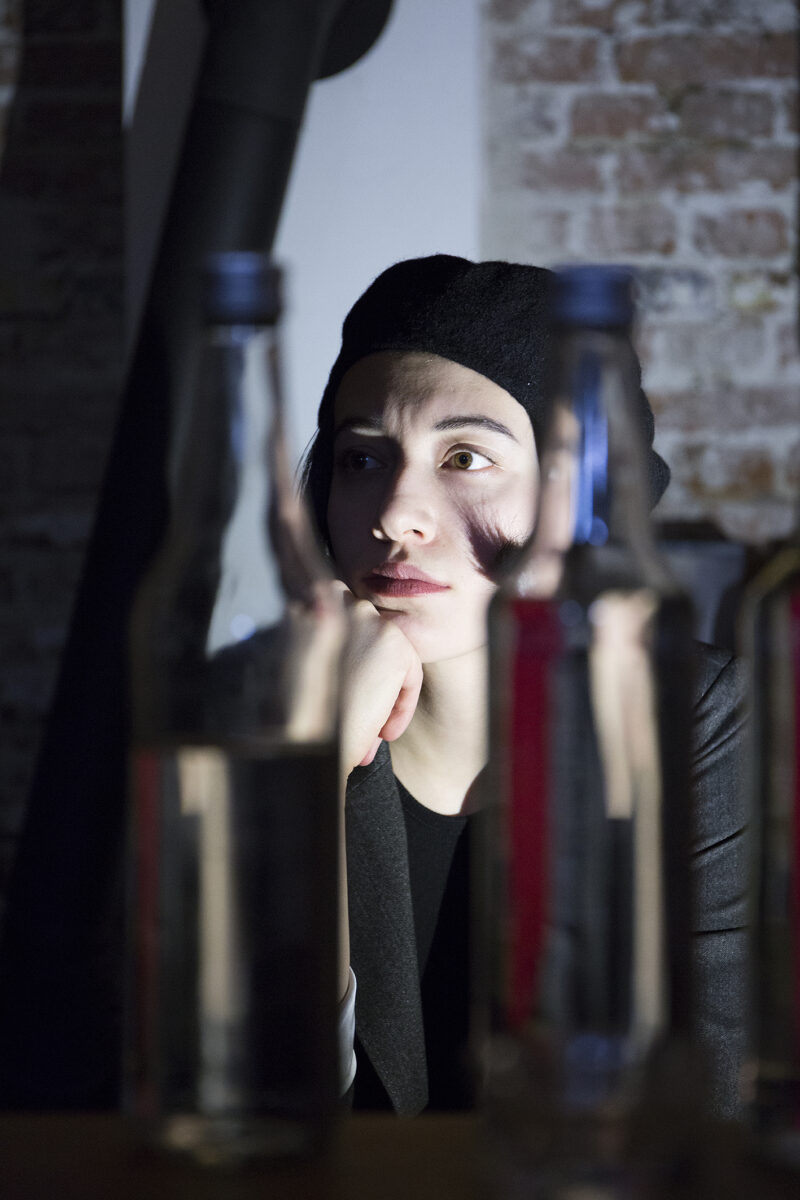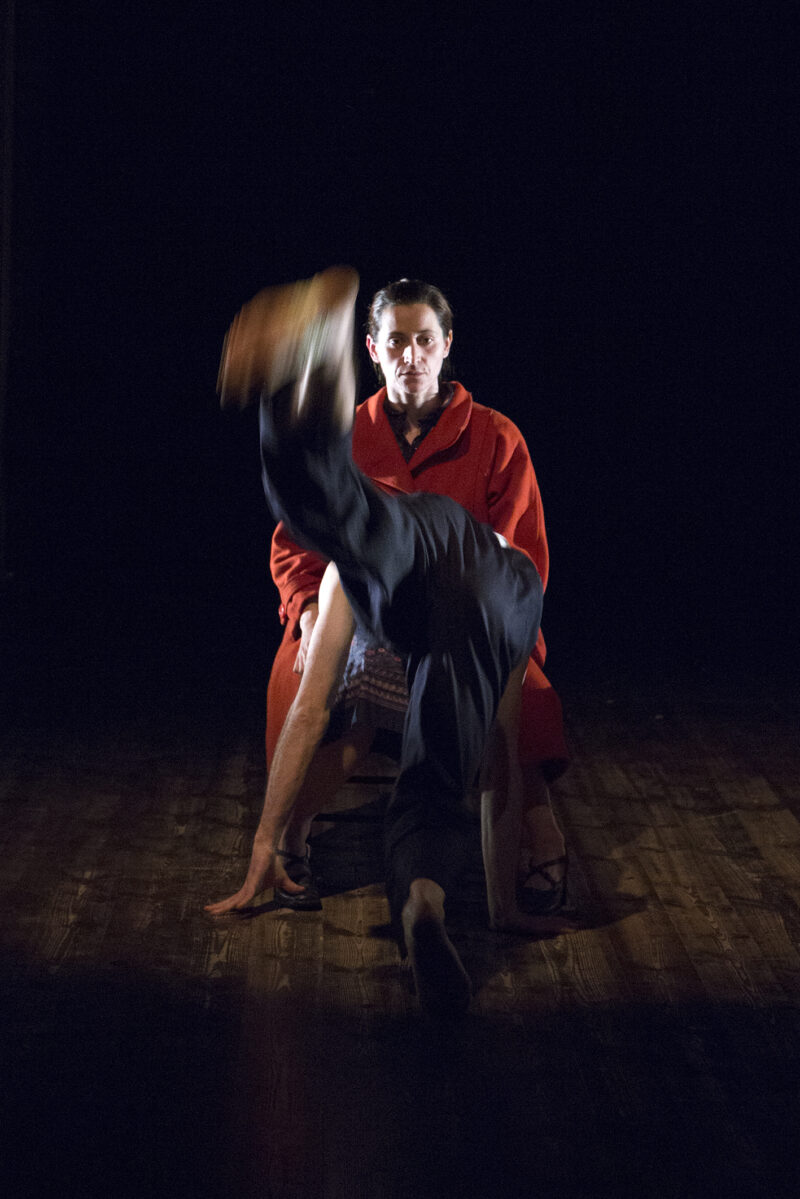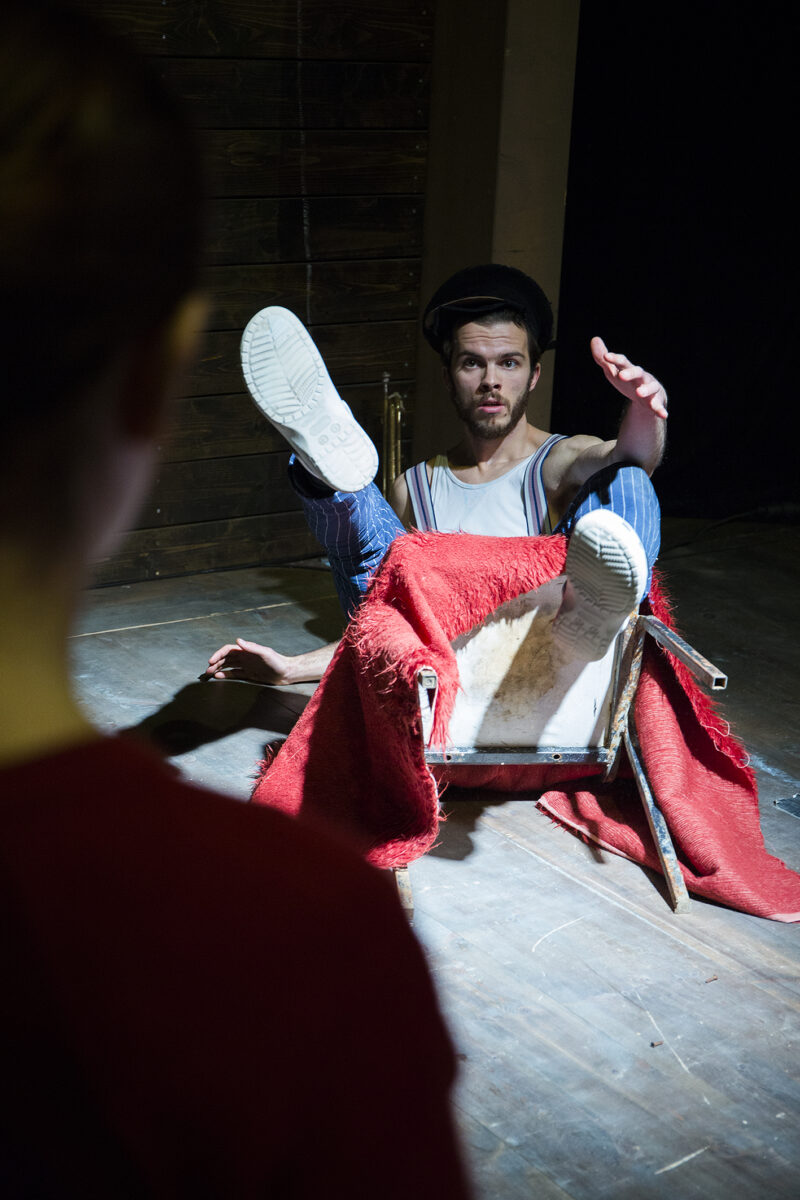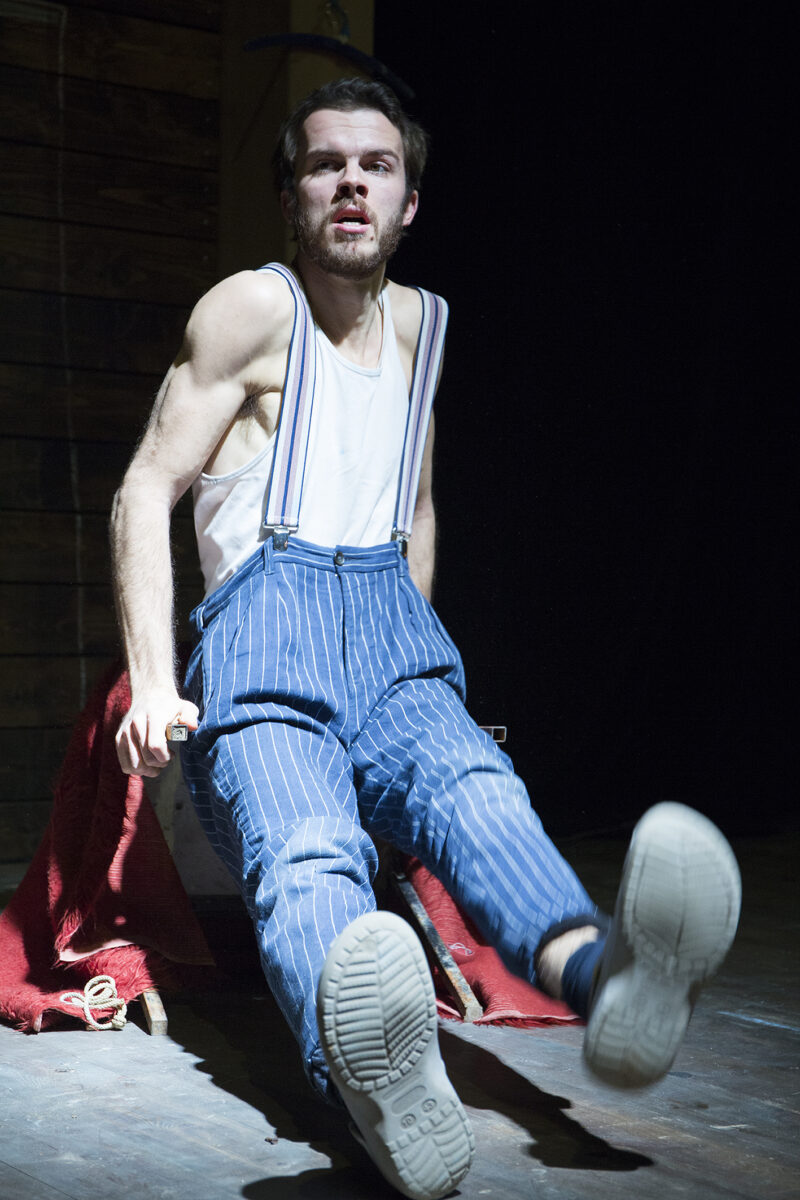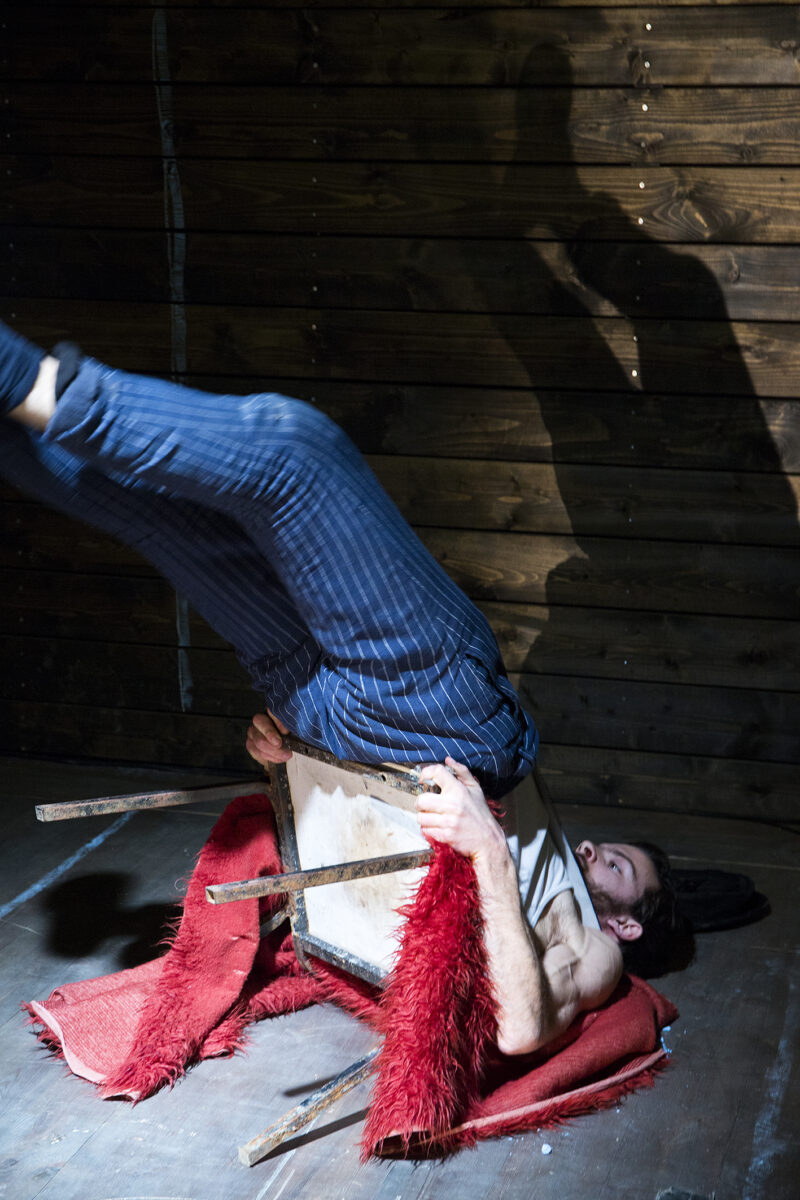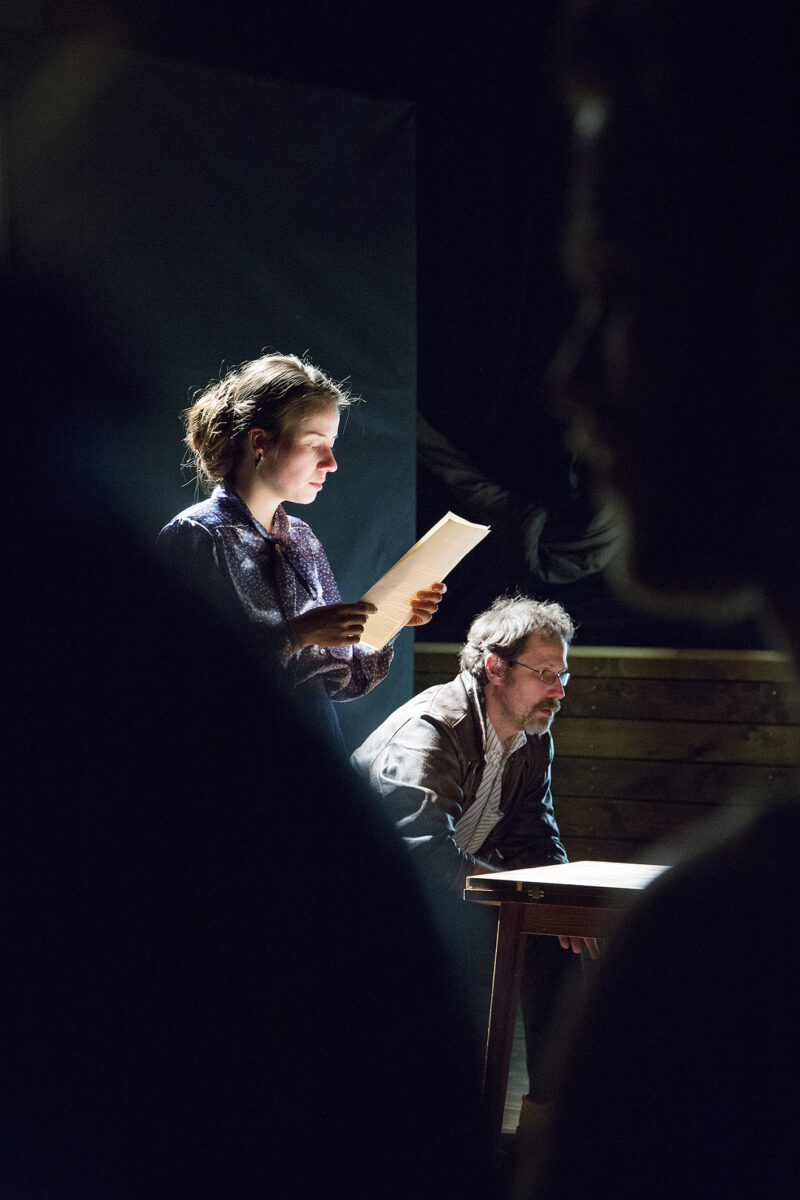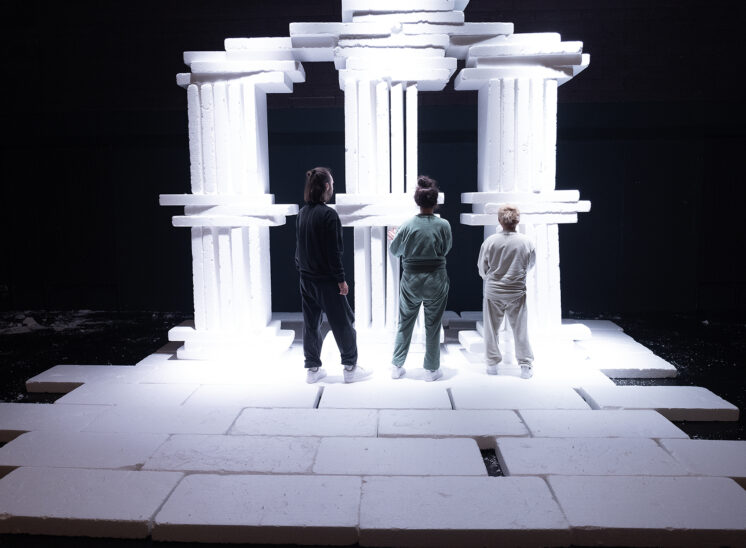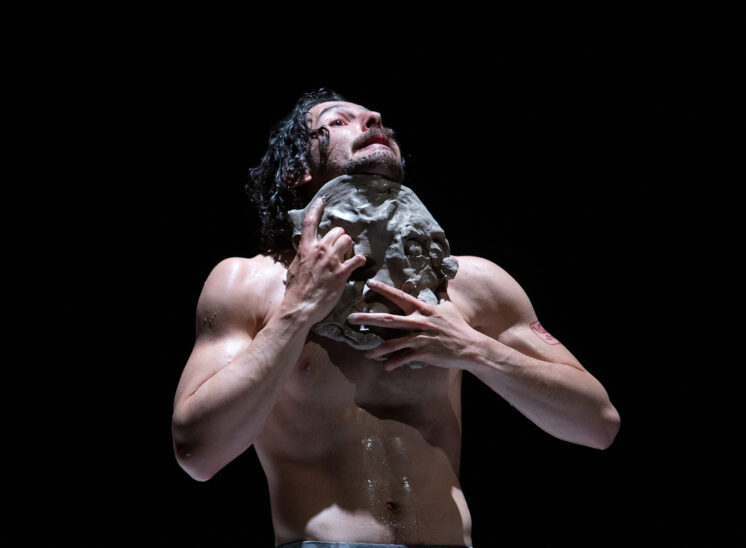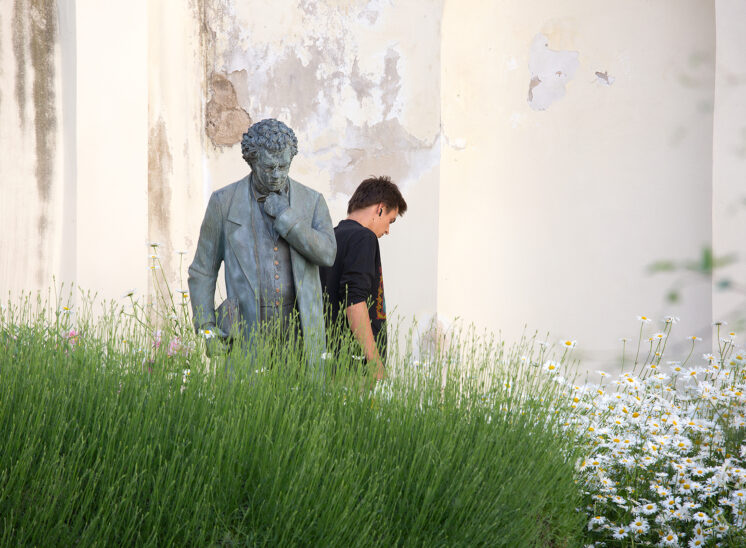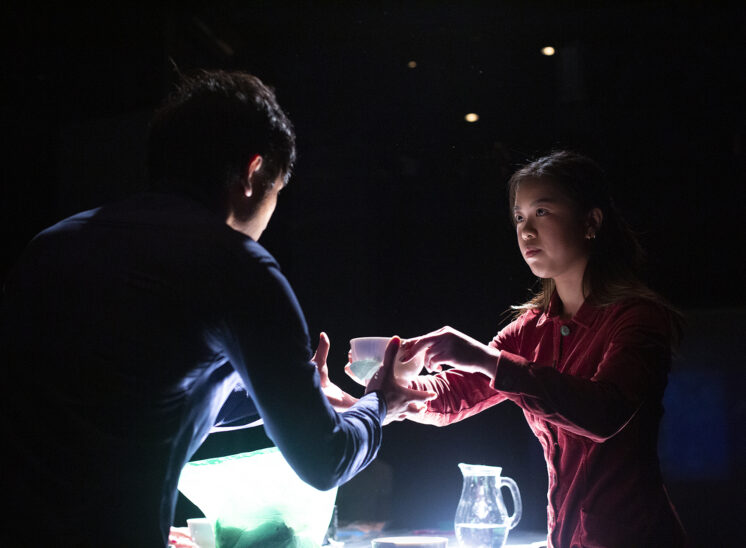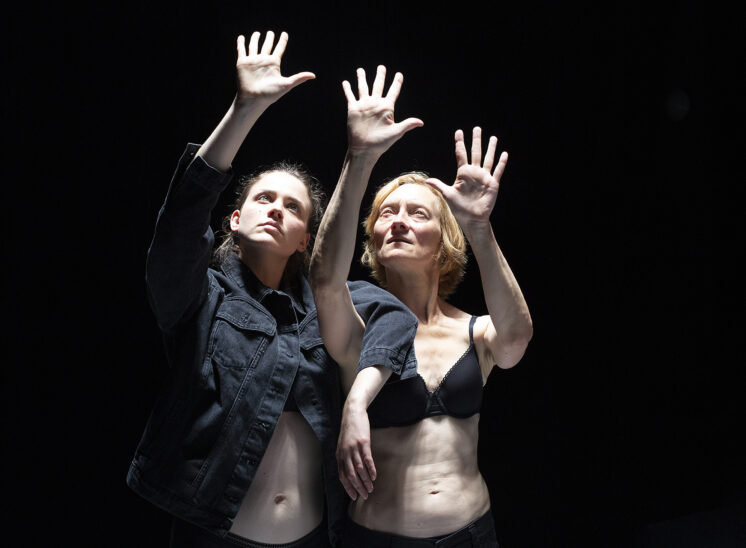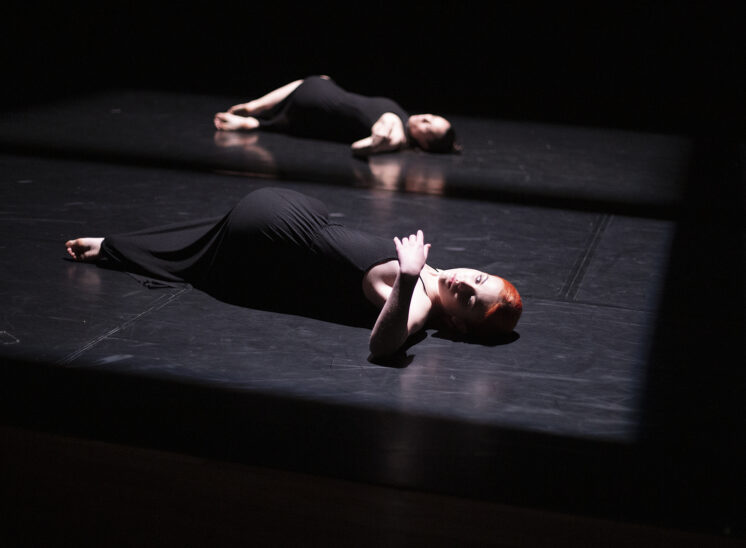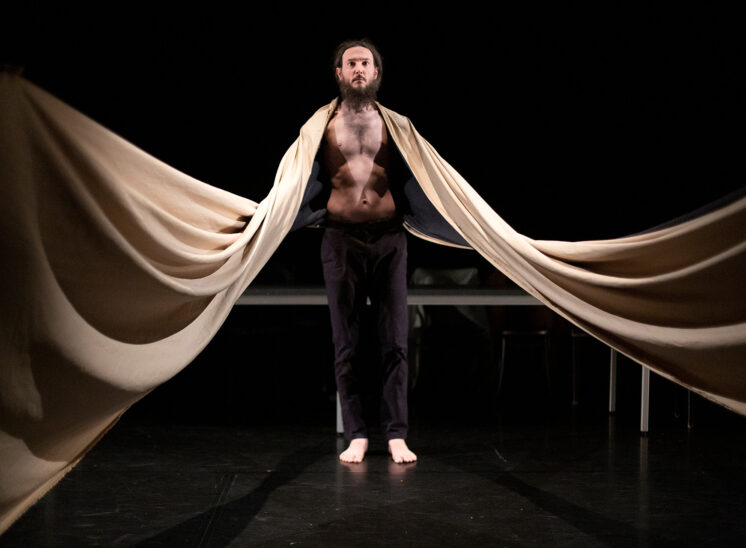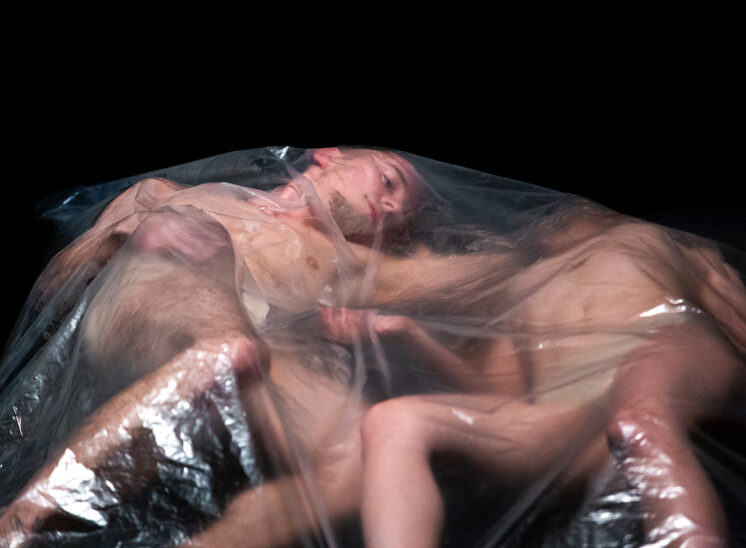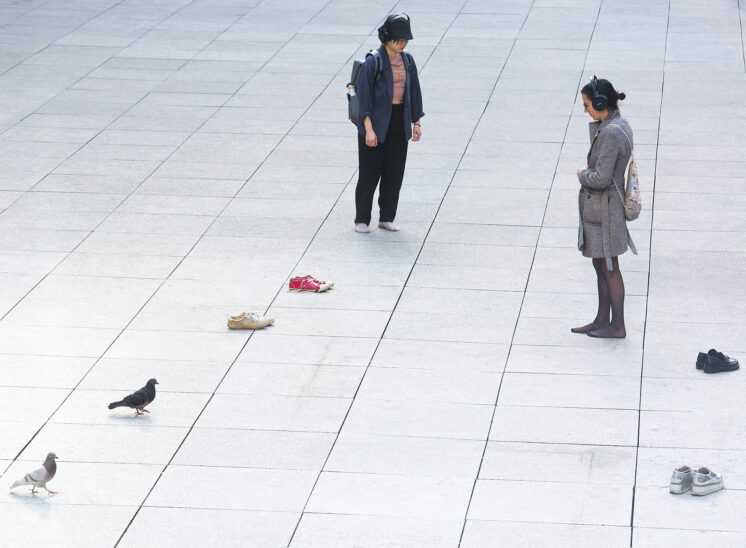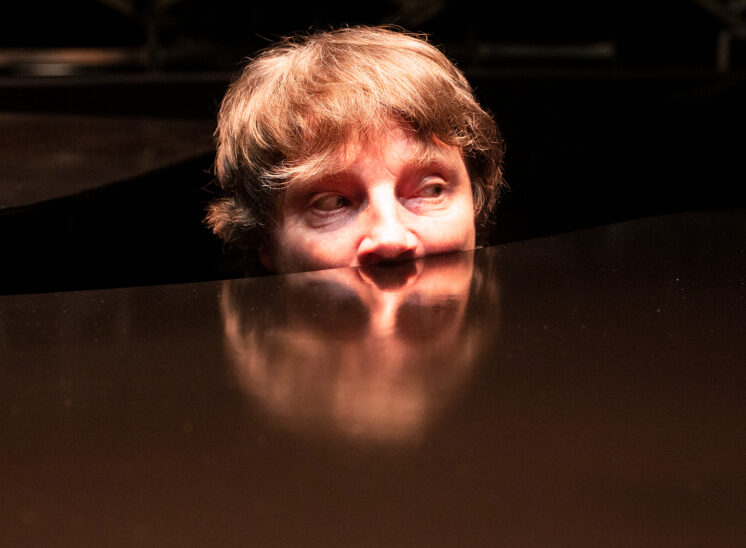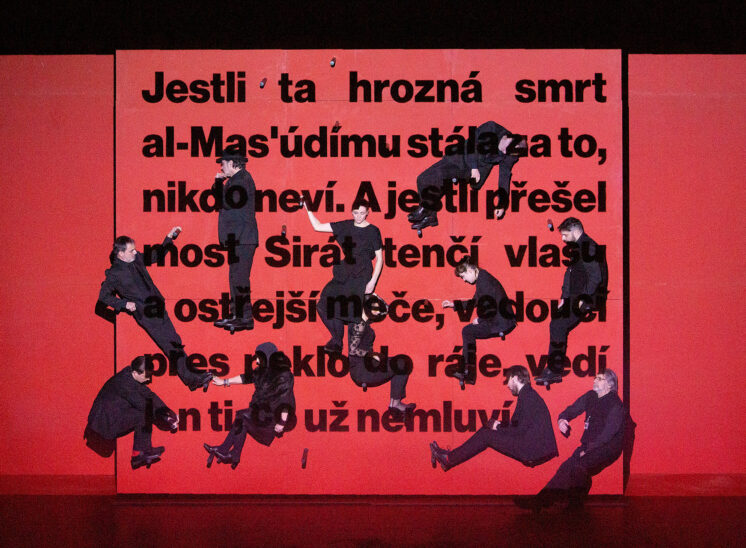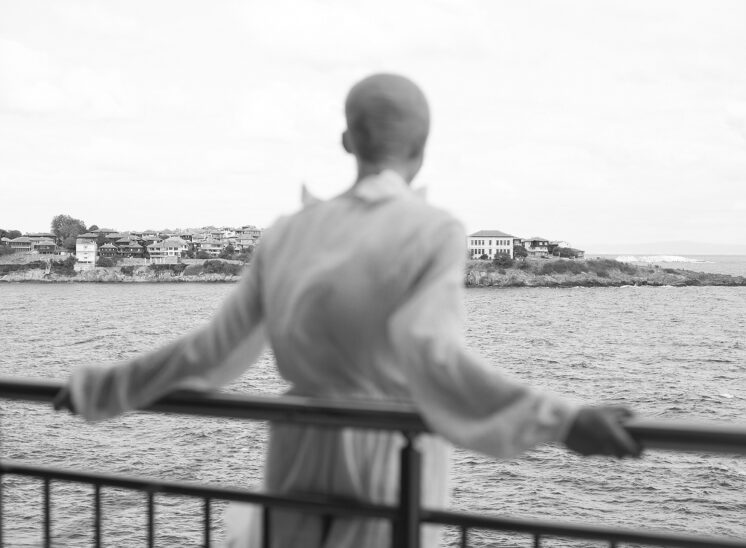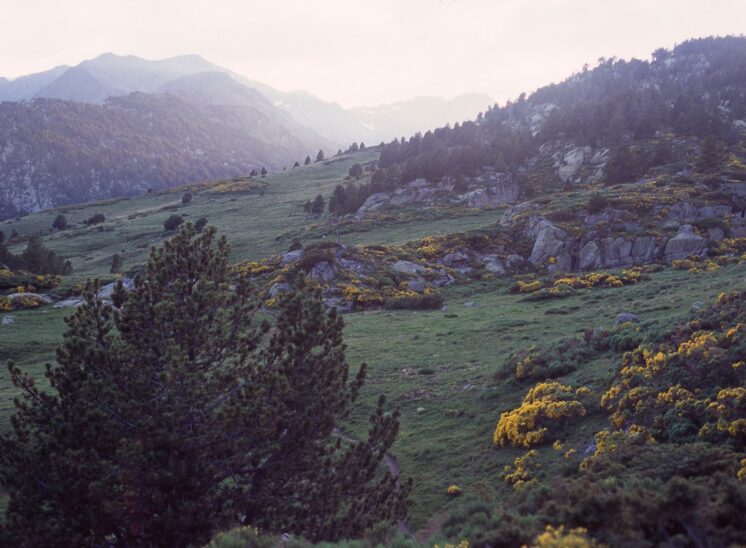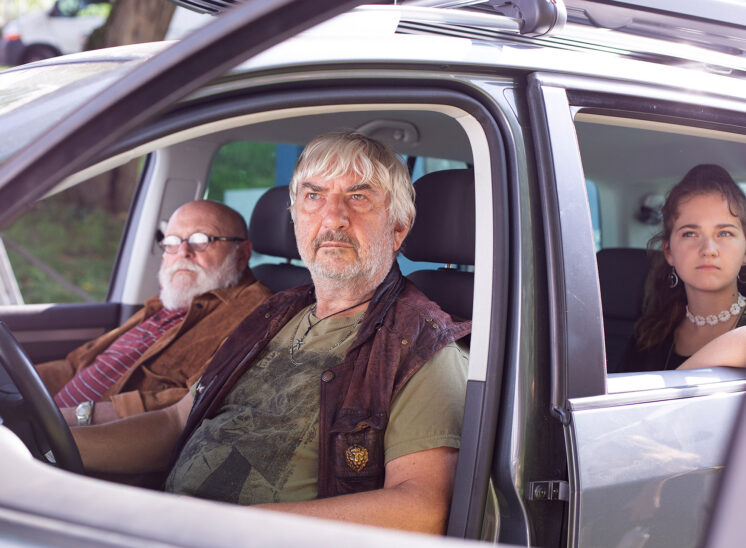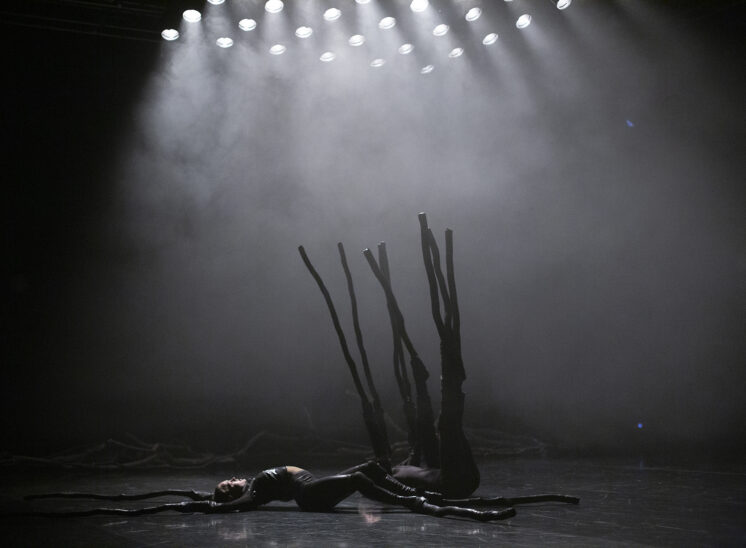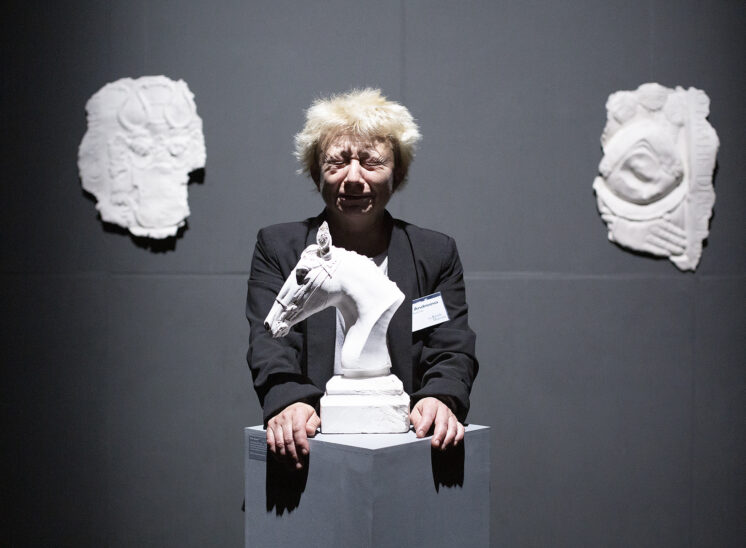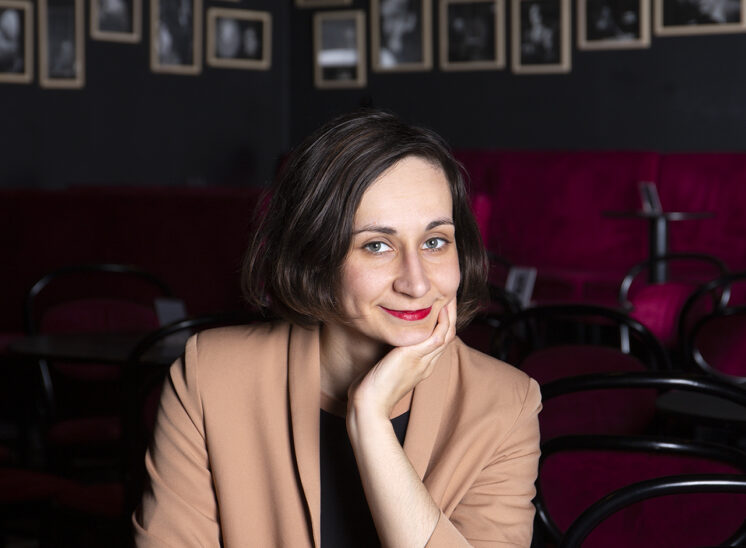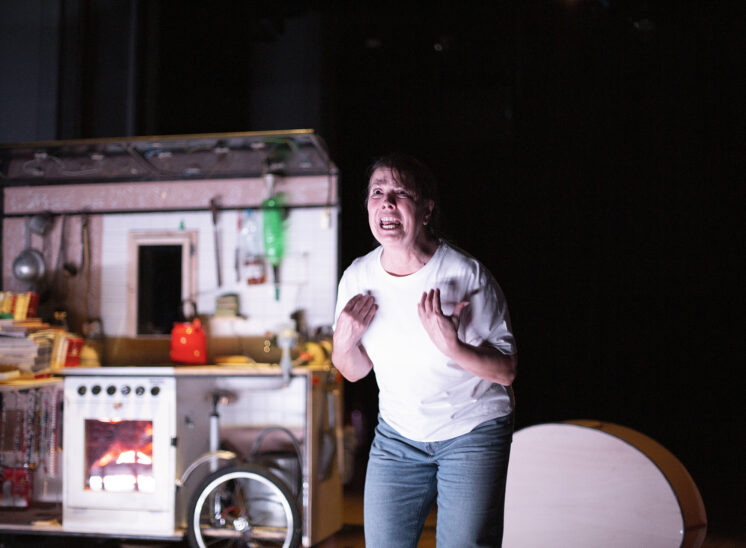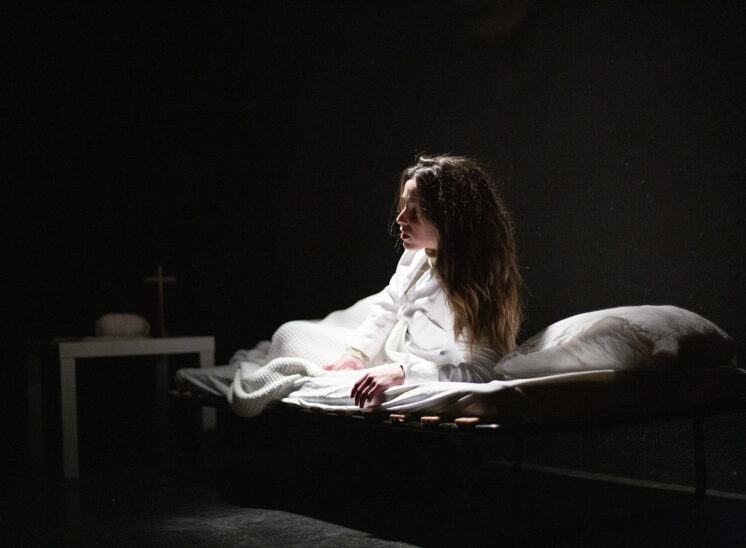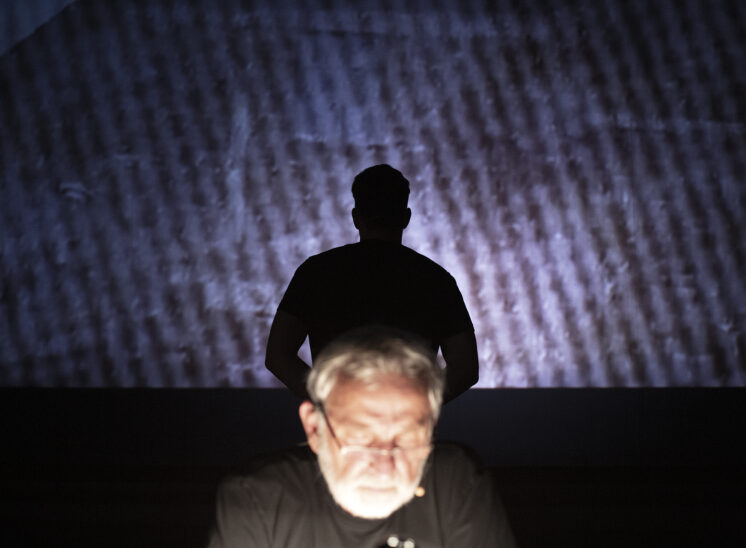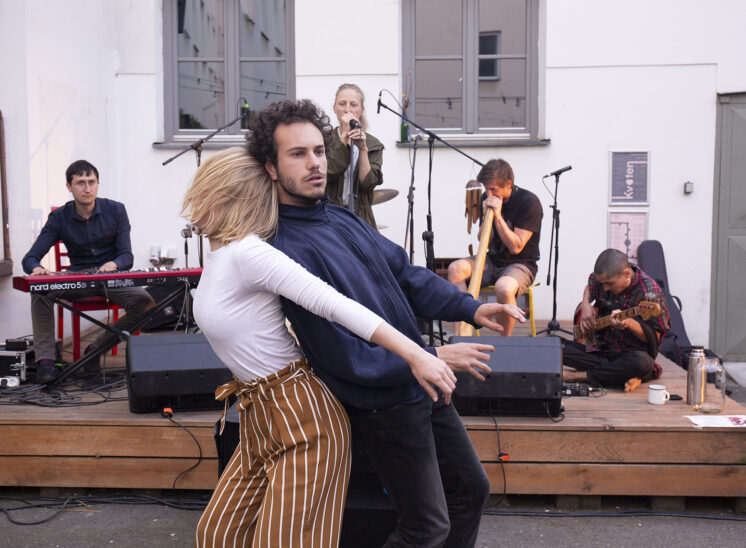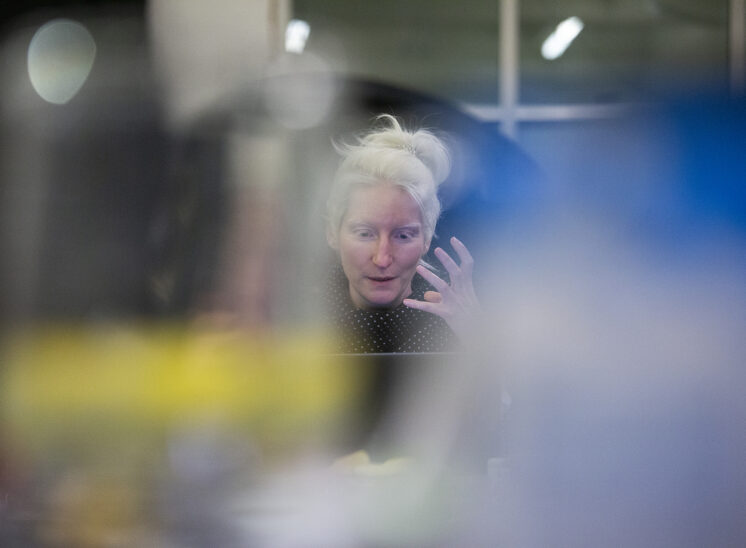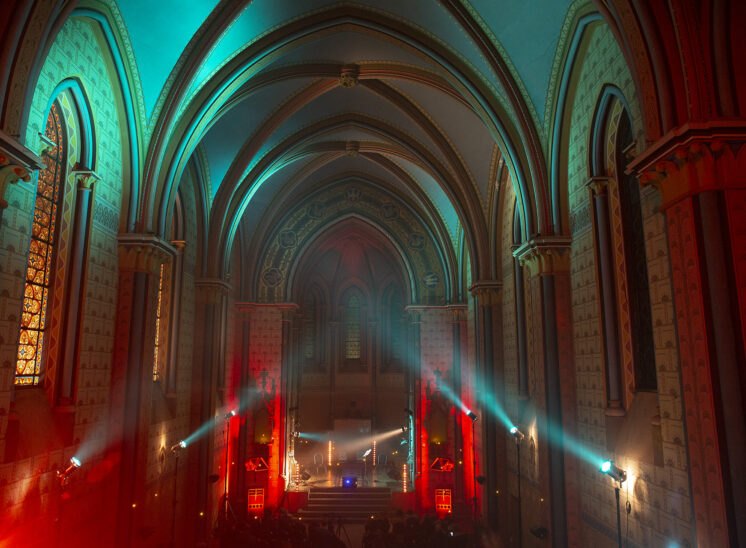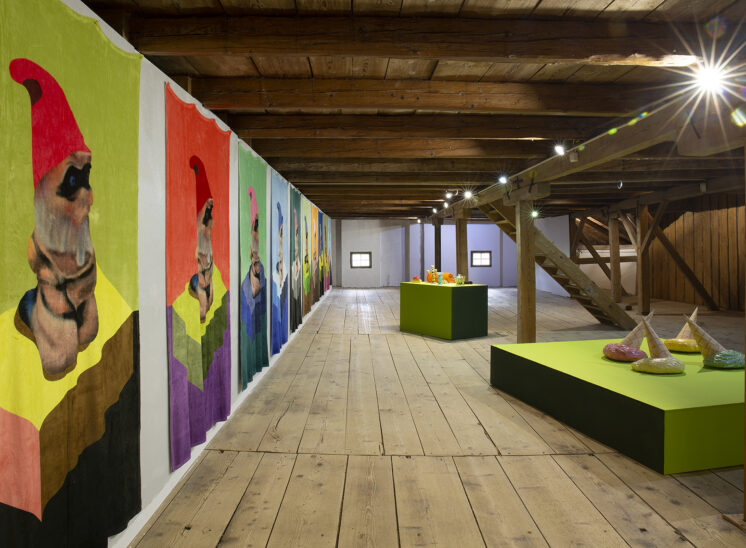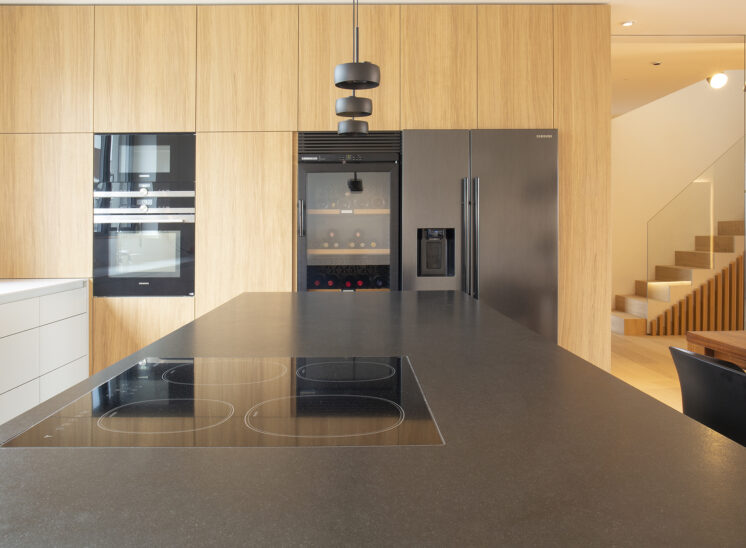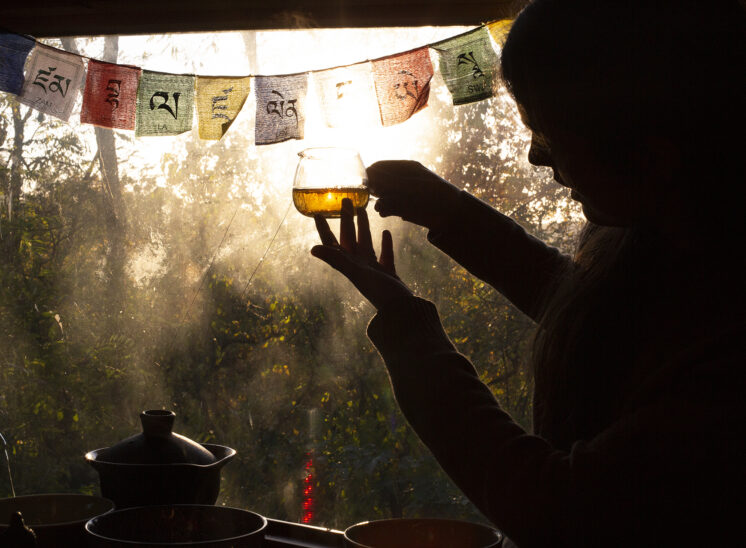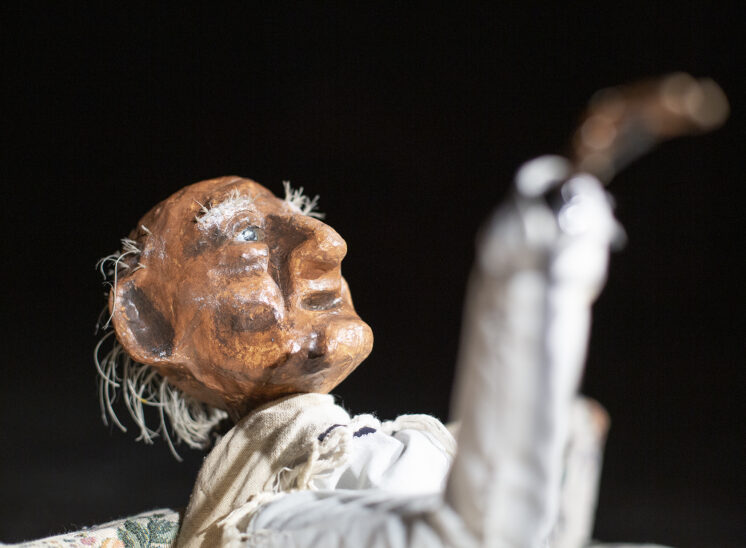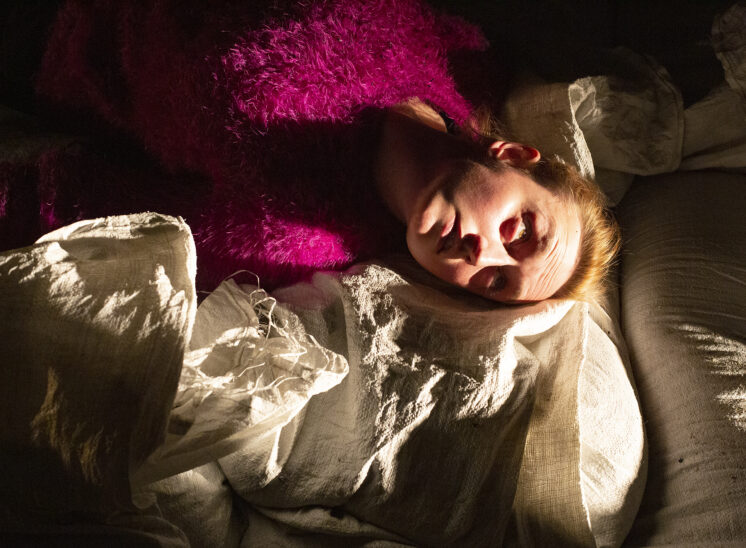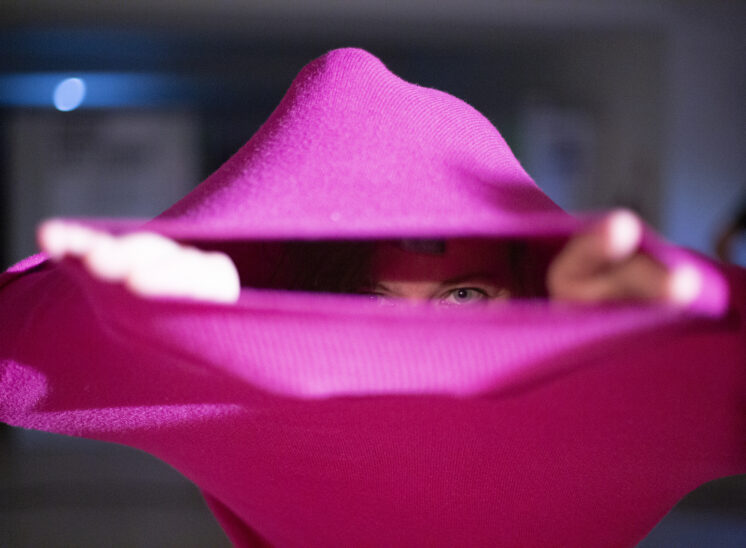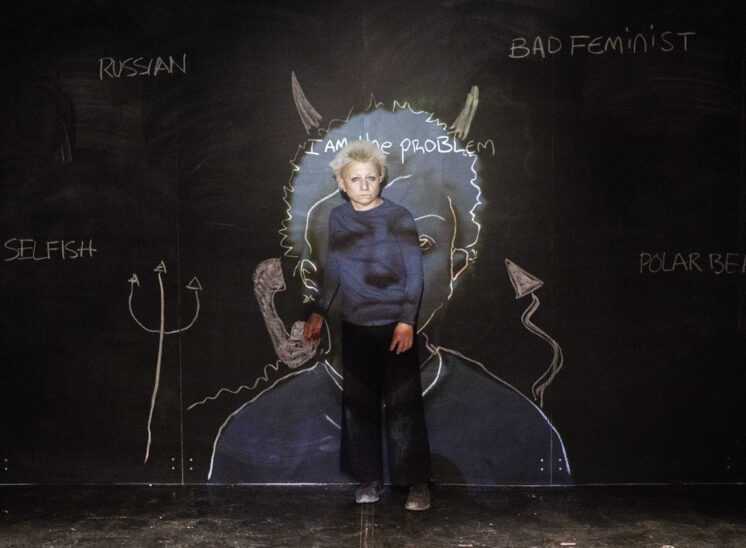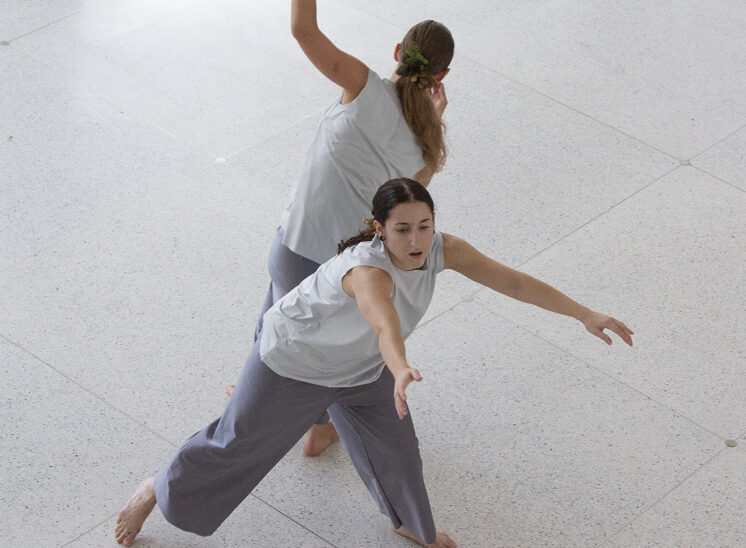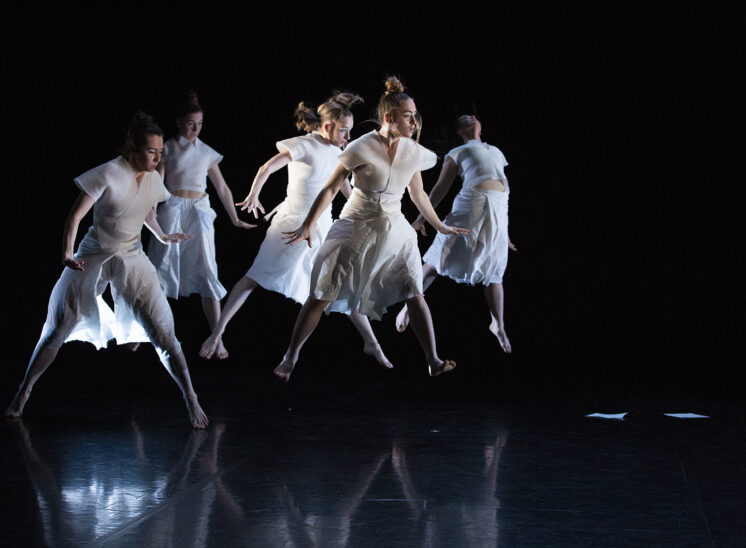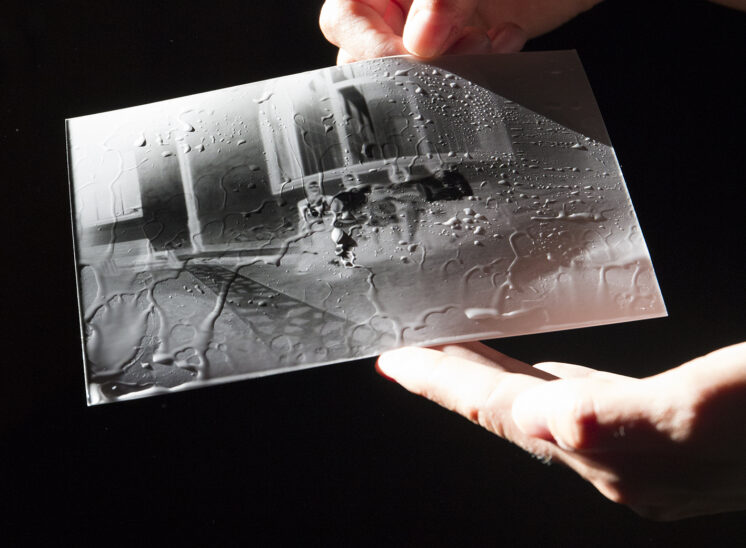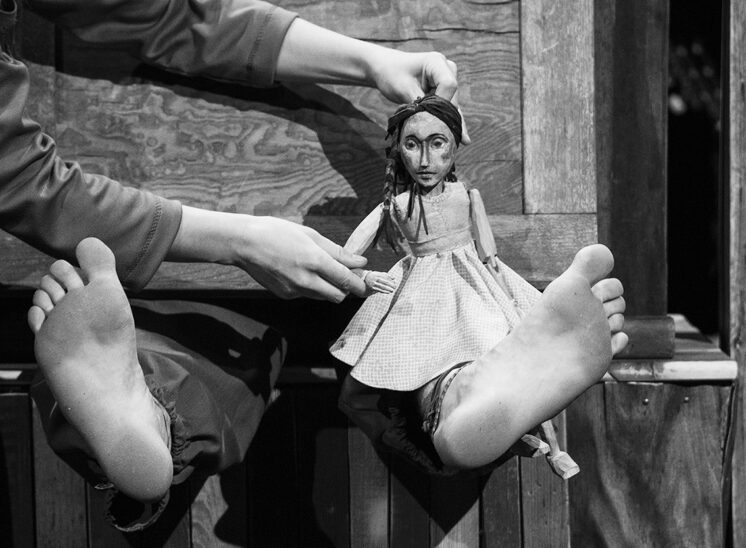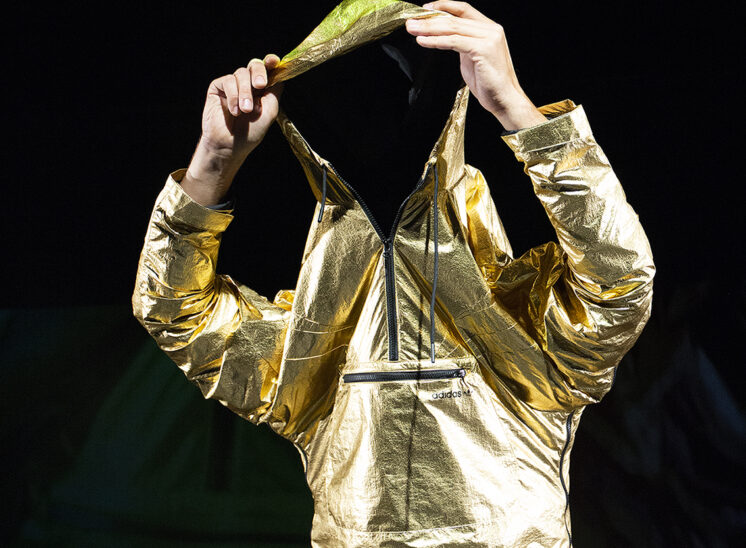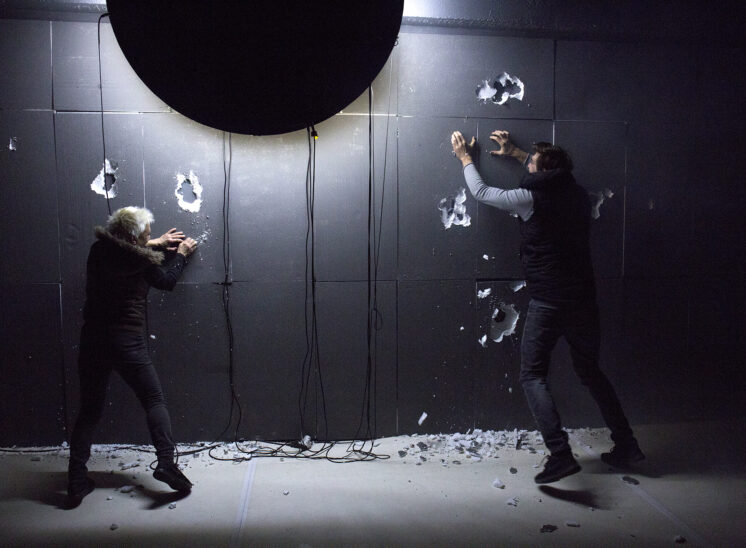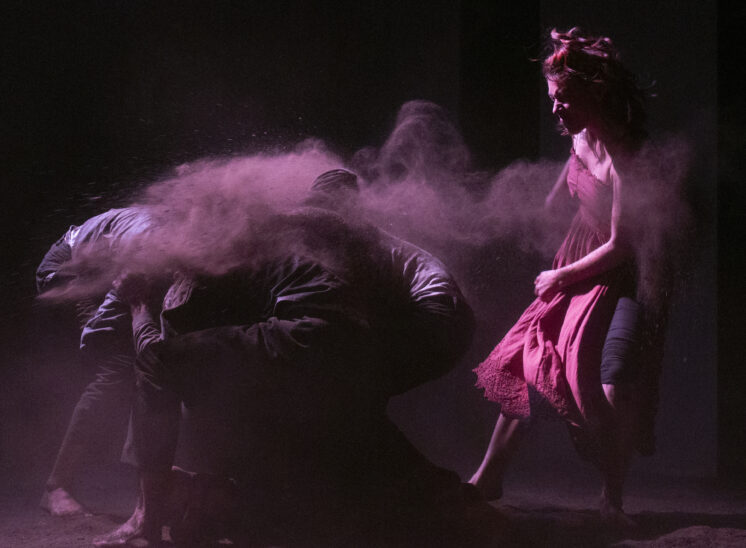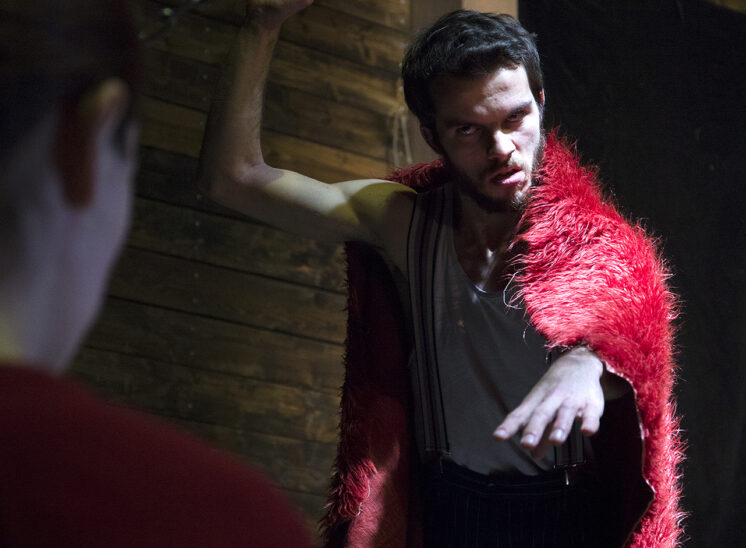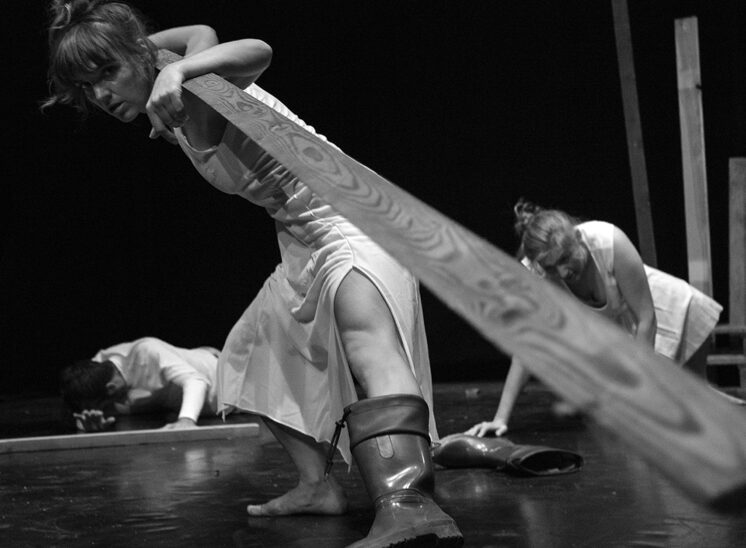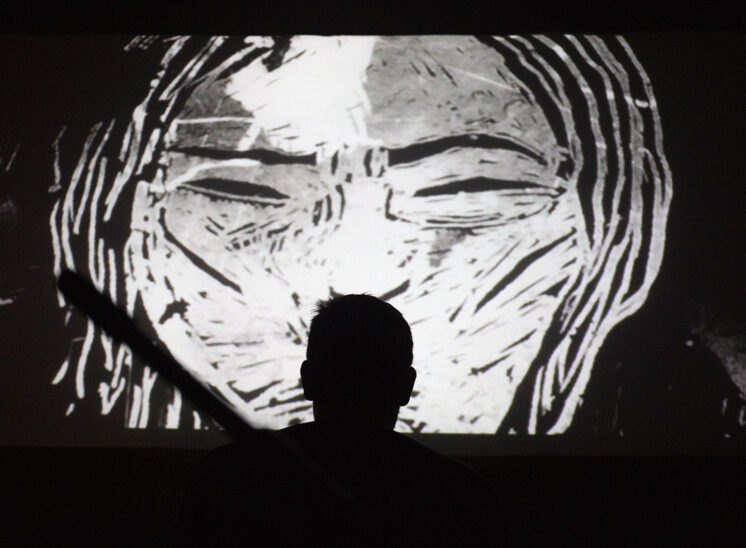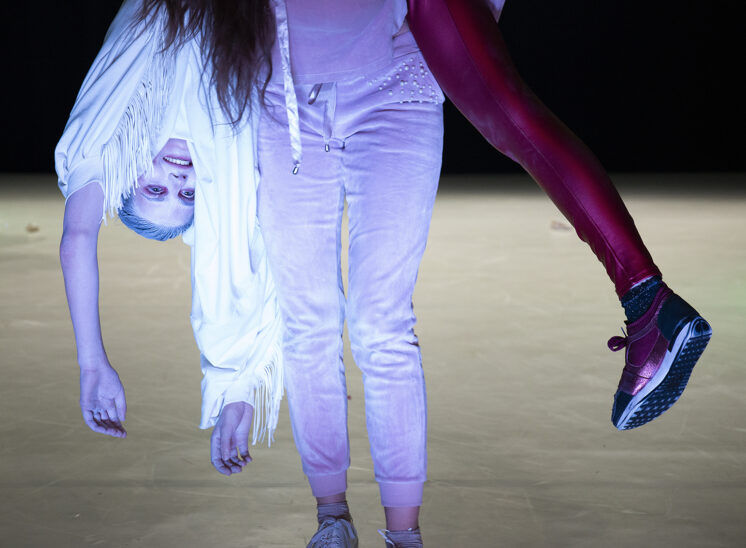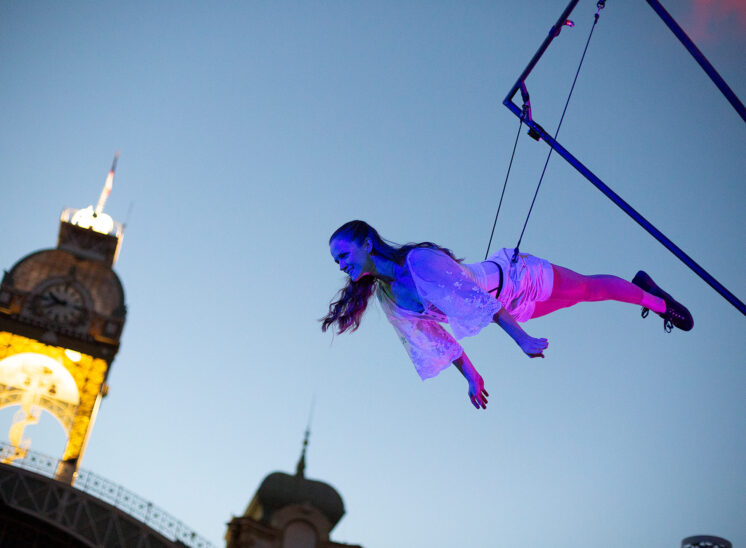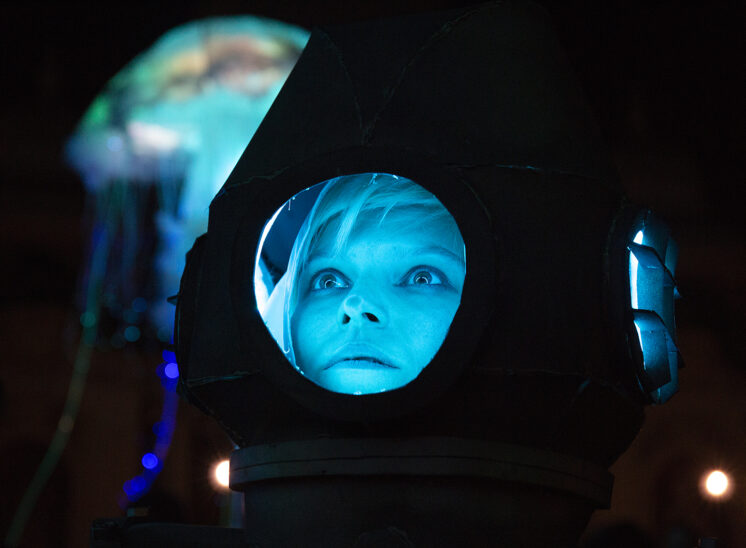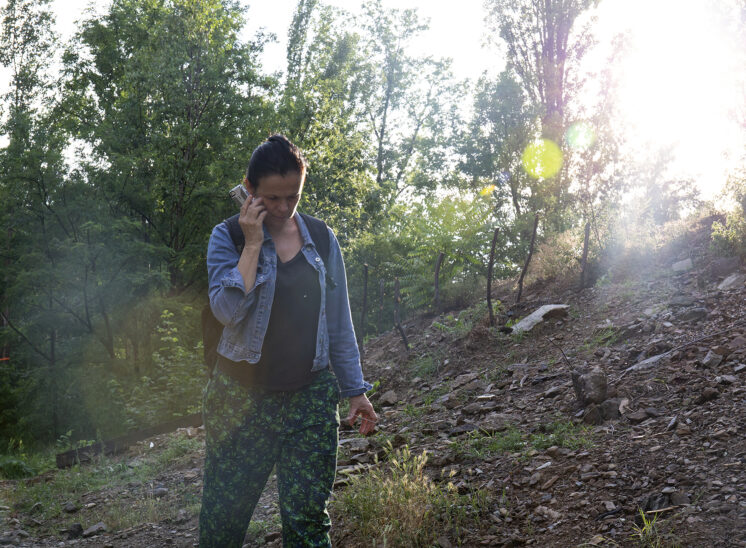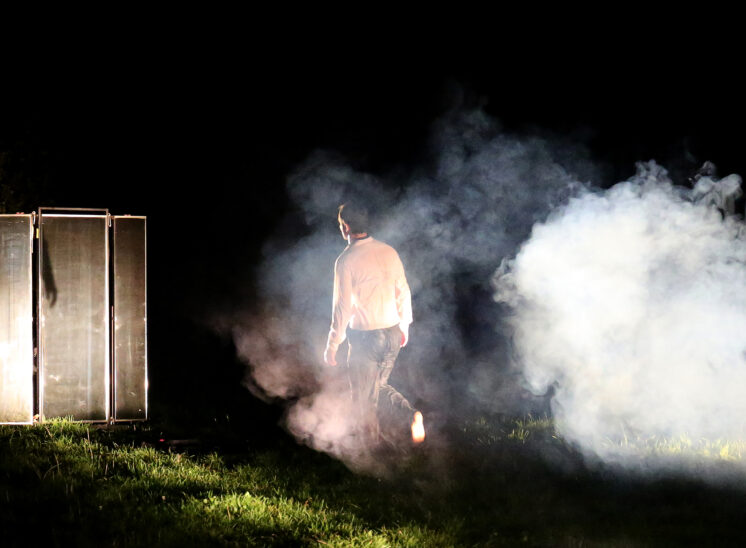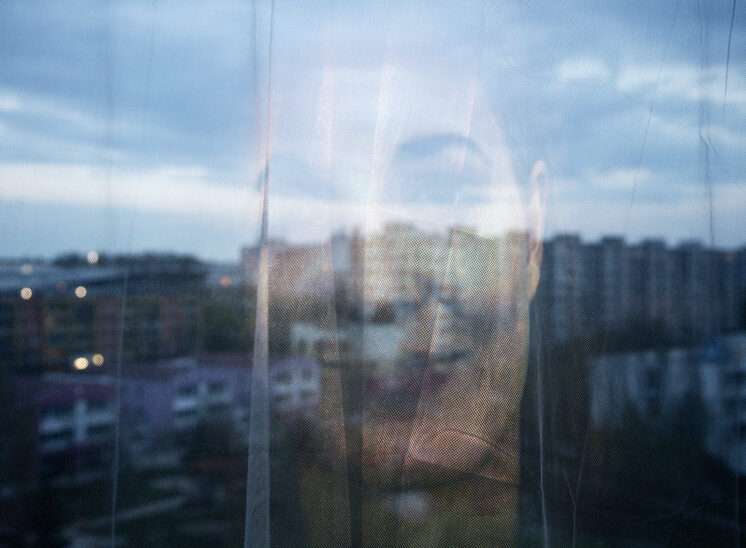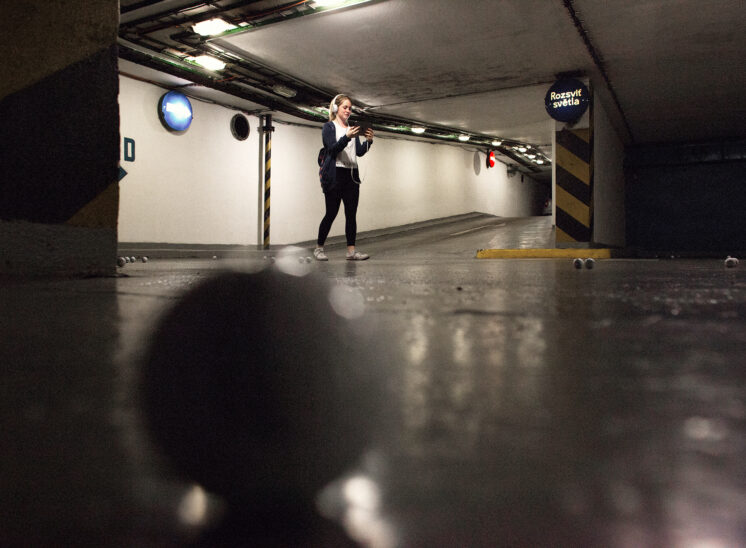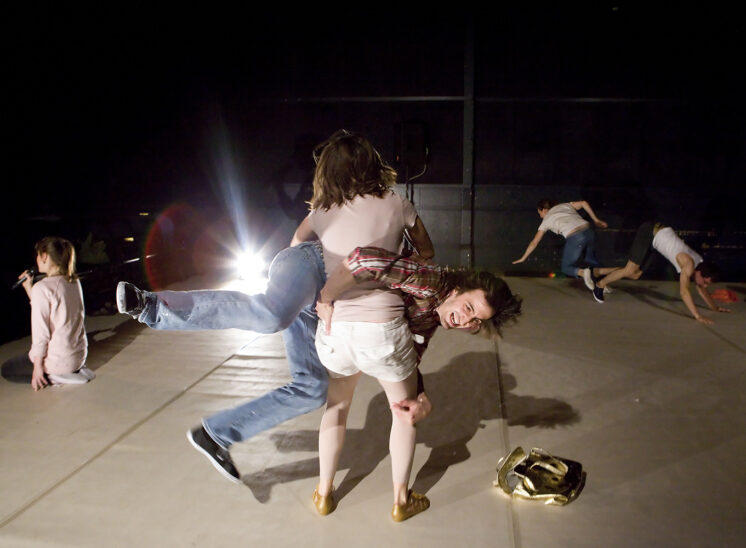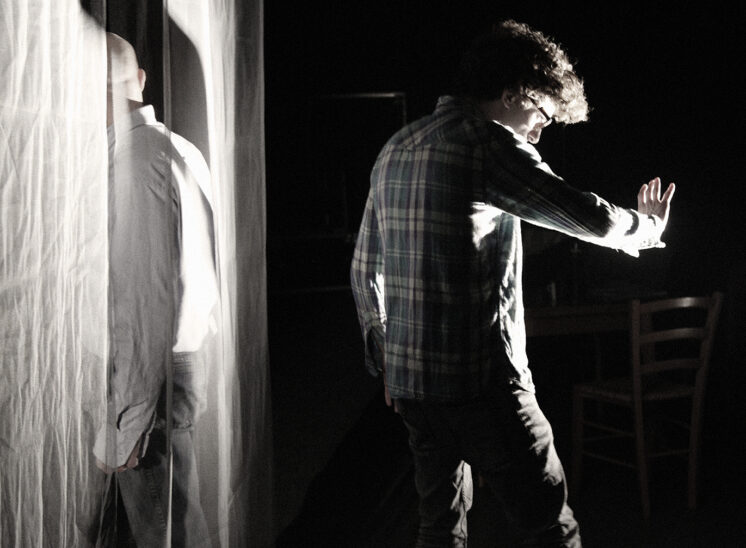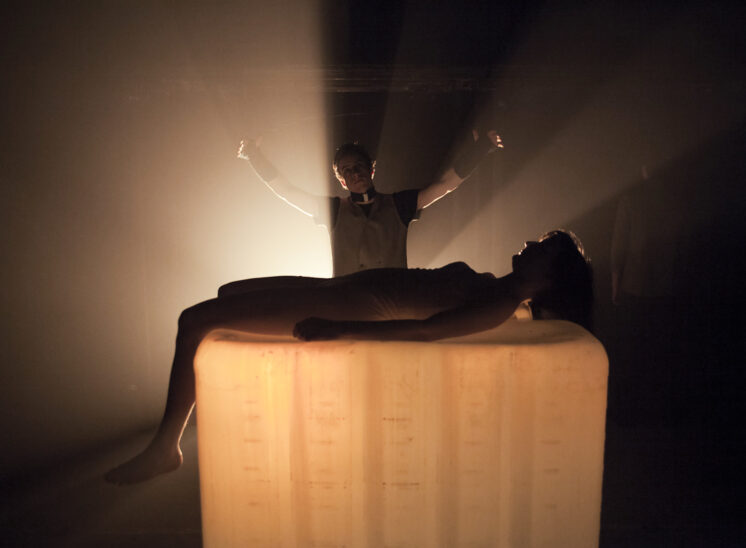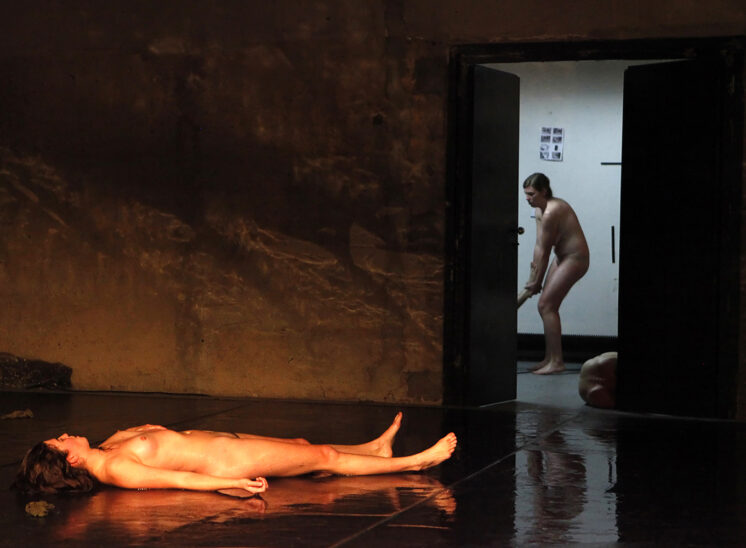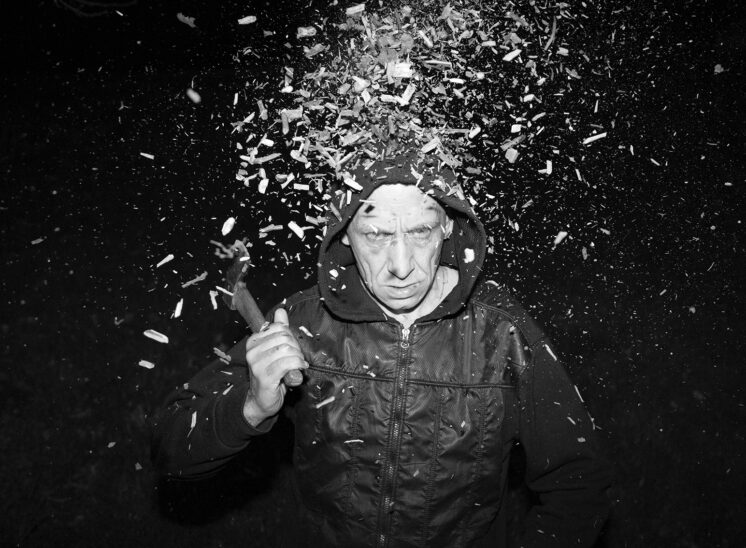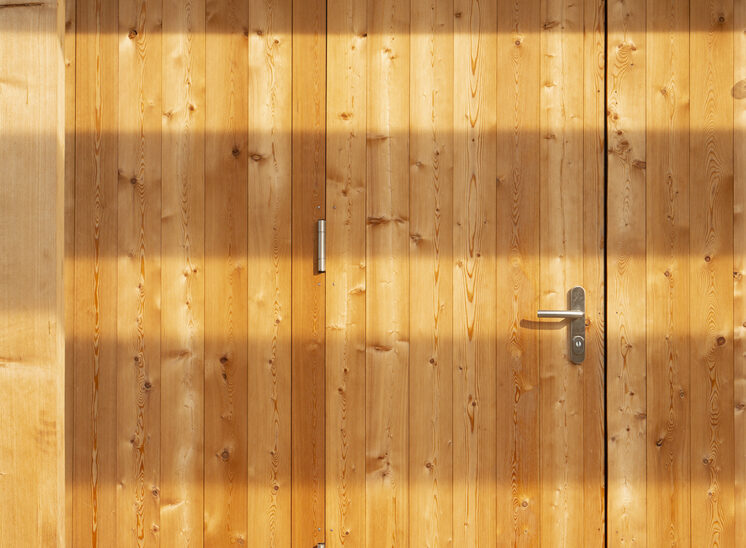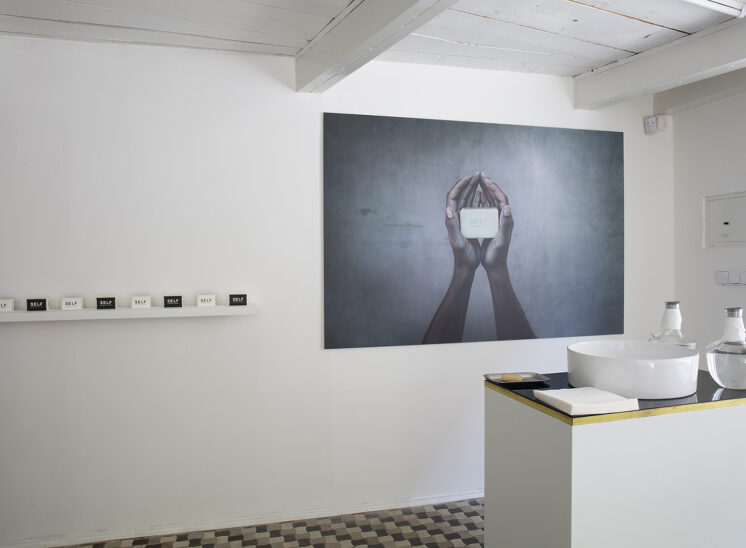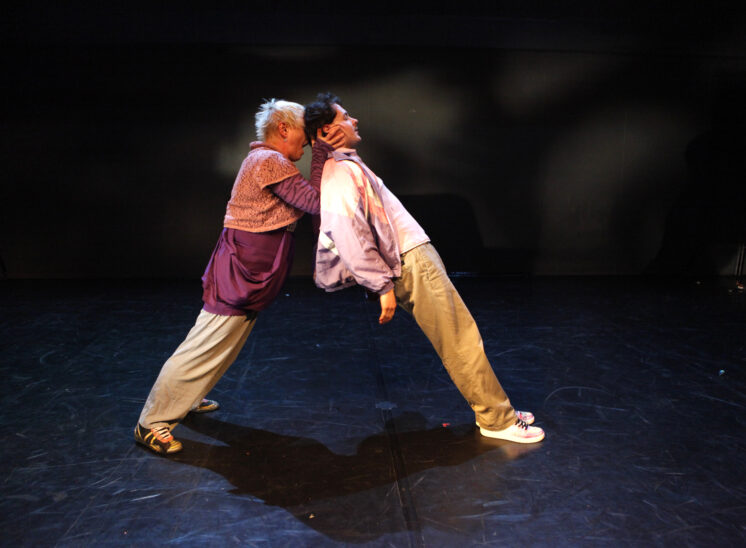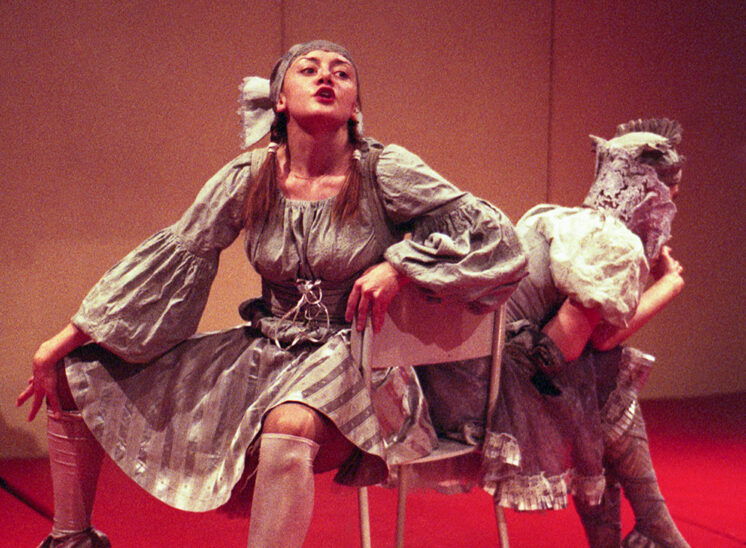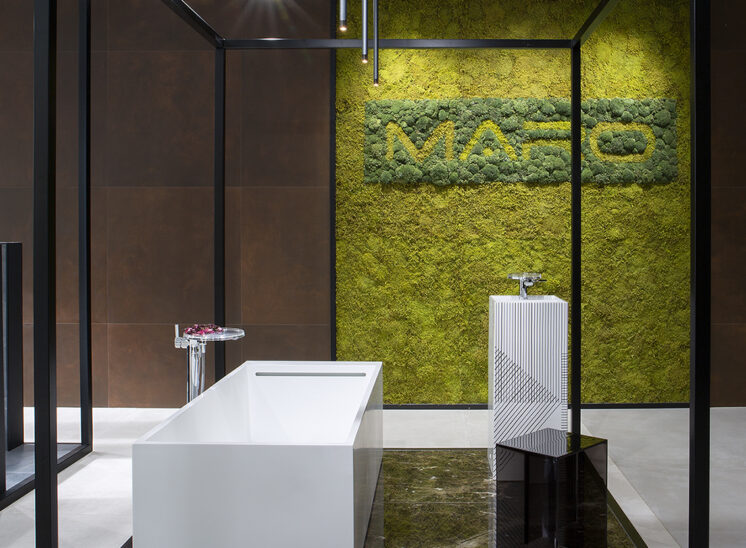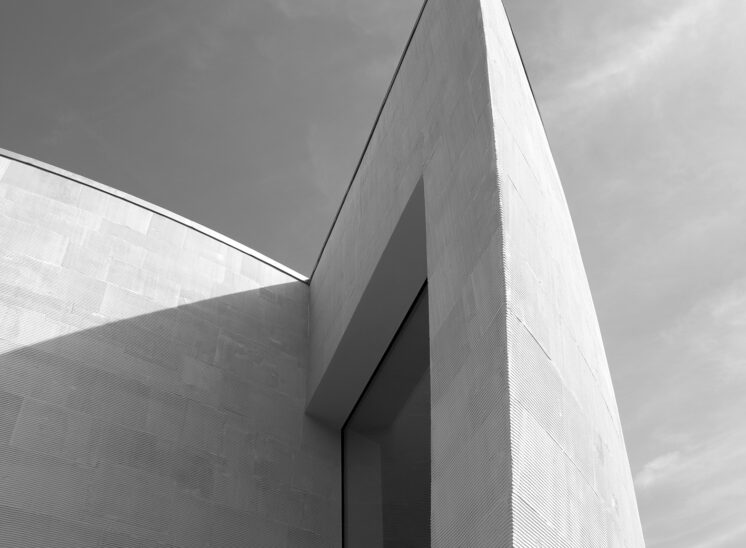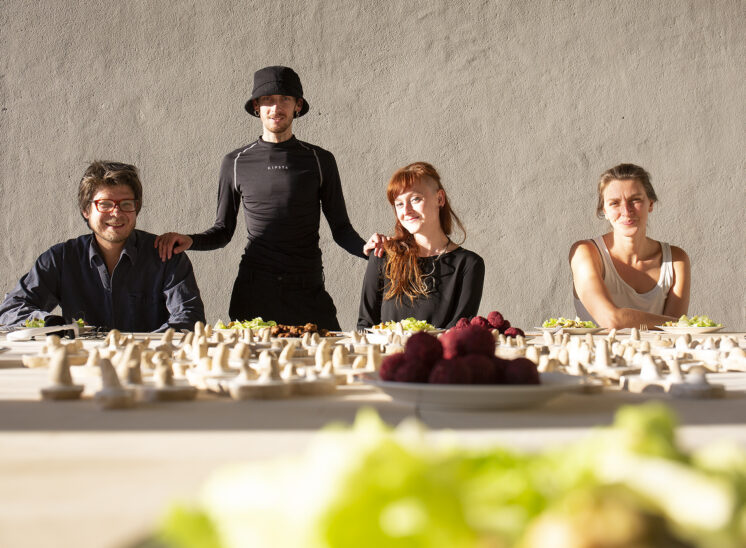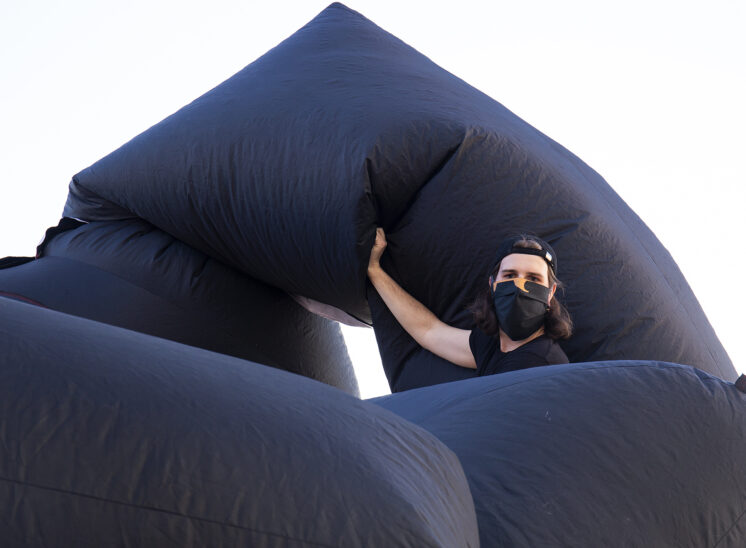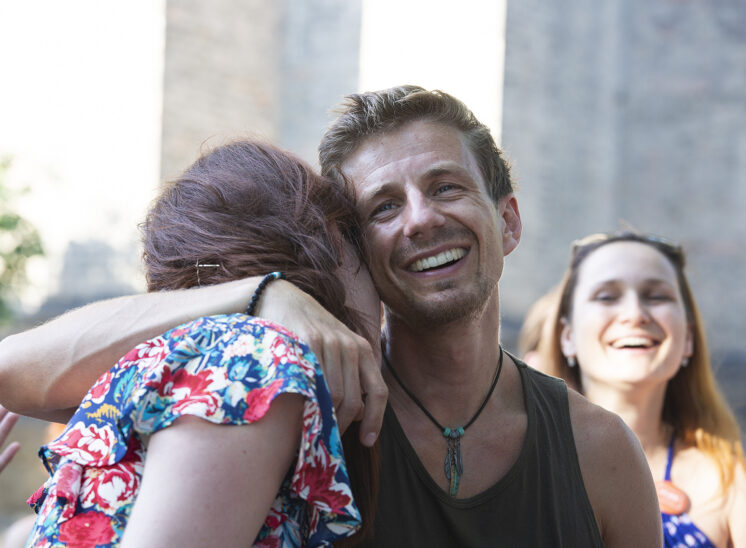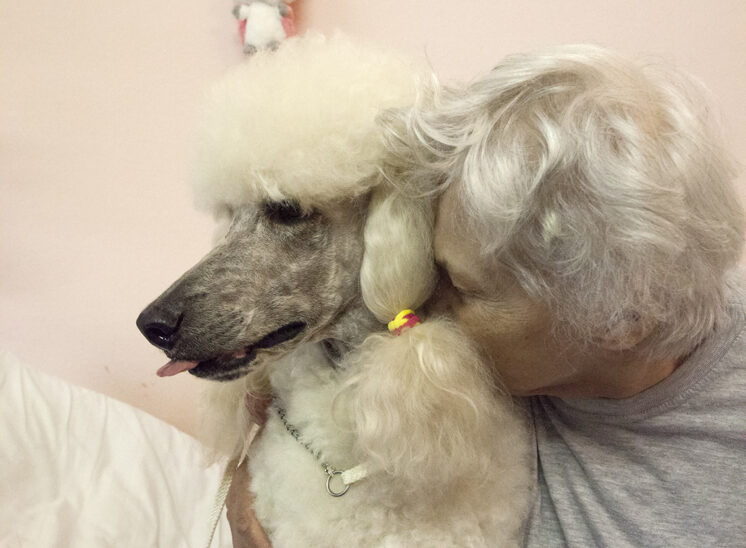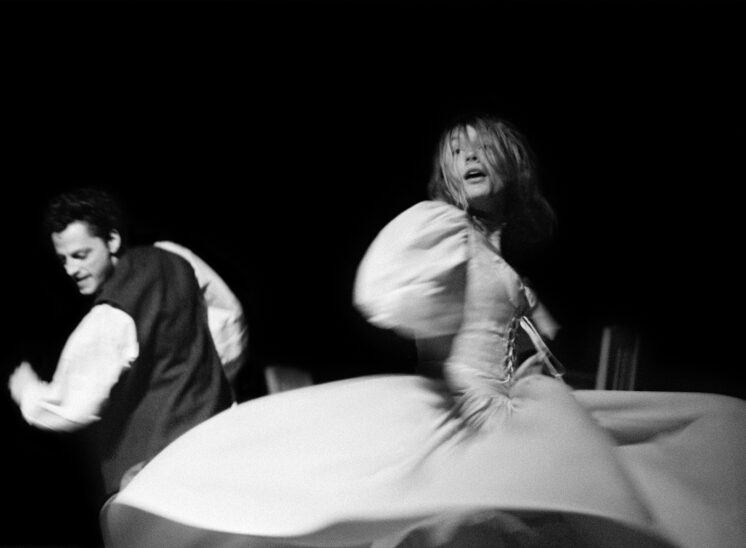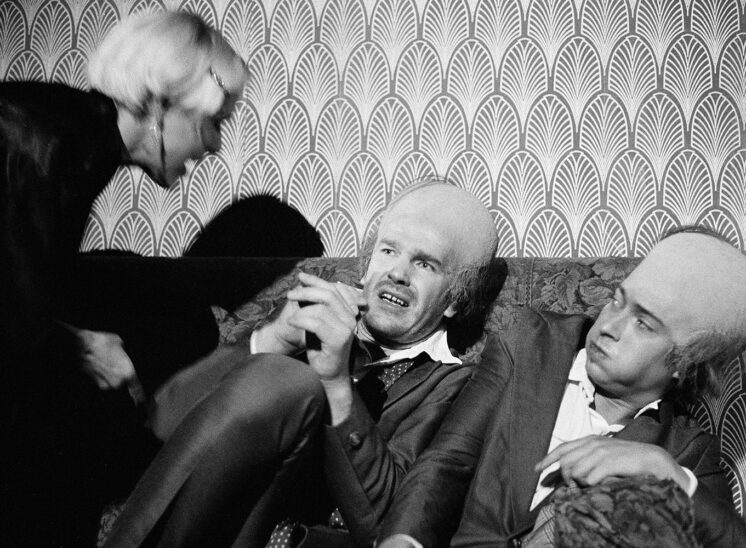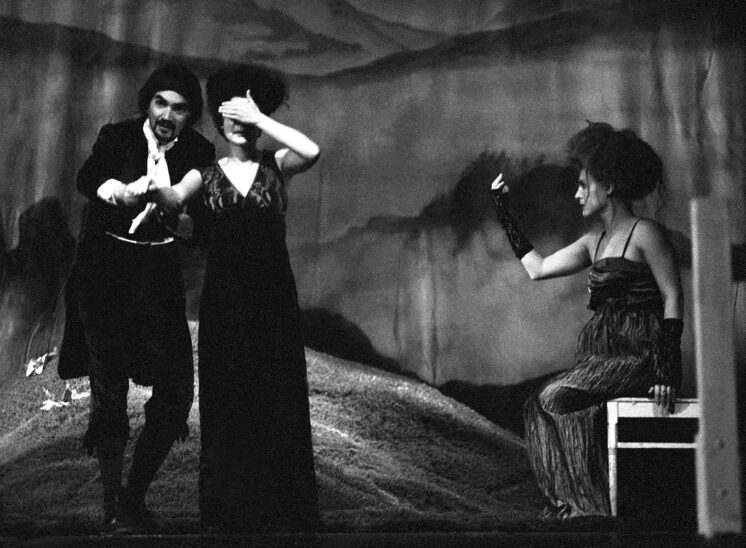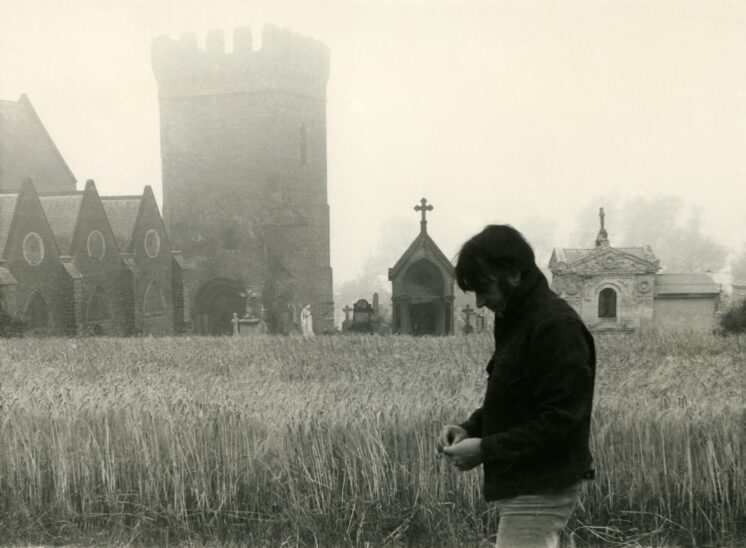Poledne
Divadlo Continuo
Podle poezie a vzpomínek Natalie Gorbaněvské
Námět a koncepce: Divadlo Continuo
Překlad předloh: Milan Dvořák
Dramaturgie: Marek Turošík & kol.
Výprava: Pavel Štourač, Helena Štouračová
Hudba: Elia Moretti & kol.
Light design: Jan Hugo Hejzlar
Technická spolupráce: Martin Hamouz
Režie: Pavel Štourač & kol.
Hrají: Kateřina Šobáňová, Sara Bocchini, Natália Váňová, Martin Janda, Felix Baumann, Pavel Štourač, Veronika Linhartová (housle, zpěv), John – Robin Bold (kytary a elektronika), Petr Tichý (kontrabas), Urban Megušar (violoncello)
25. srpna 1968 přichází na Rudé náměstí v Moskvě drobná žena. Před sebou tlačí kočárek s tříměsíčním synem. V peřince má chlapeček přibalený ručně psaný transparent s nápisem Za vaši a naši svobodu. Společně se ženou usedá sedm dalších lidí na dlažbu a roztahuje své transparenty právě ve chvíli, když hodiny na Spasské věži odbíjejí poledne.
Inscenace vychází ze stejnojmenné knihy Natalie Gorbaněvské, jež byla společně s lingvistou Konstantinem Babickim, básníkem Vadimem Delonem, dělníkem Vladimirem Dremljugou, anglistou Viktorem Fajnbergem, fyzikem Pavlem Litvinovem, lingvistkou Larisou Bogorazovou a studentkou Taťjanou Bajevovou jednou z „osmi statečných“, kteří 25. srpna 1968 zorganizovali pokojnou demonstraci na Rudém náměstí proti okupaci Československa vojsky Varšavské smlouvy. Demonstrace byla během několika minut rozehnána tajnými agenty KGB a její účastníci pozatýkáni. Následovaly výslechy, soudy, vězení, vyhnanství, pracovní tábory a nucené umístění v psychiatrických léčebnách.
Divadelní inscenace v sobě spojuje dokumentární divadlo vyprávějící o událostech, které následovali po demonstraci 25. srpna 1968 a výtvarné divadlo neodbytných obrazů, inspirovaných poezií Natalie Gorbaňevské, Vadima Deloneho a dalších básníků sovětského disentu 60. a 70. let.
Noon
Continuo Theatre
Concept: Continuo Theatre
Dramaturgy: Marek Turošík & kol.
Set design: Pavel Štourač, Helena Štouračová
Music: Elia Moretti & kol.
Light design: Jan Hugo Hejzlar
Technical collaboration: Martin Hamouz
Directed by: Pavel Štourač & kol.
On 25th August 1968 a slight woman is coming to Red Square in Moscow. She is pushing a pram with her three-month-old son. There is a hand-written banner under the baby blanket. It says For Your Freedom and Ours. The woman is sitting down on the pavement together with seven other people. They are spreading their banners just when the clock at Spassky Tower is striking noon.
The performance is based on the book of the same name by Natalya Gorbanevskaya, who was one of these “Brave eight”. Together with Konstantin Babicky, a linguist, Vadim Delon, a poet, Vladimir Dremlyuga, a worker, Viktor Fainberg, a specialist in English philology, Pavel Litvinov, a physicist, Larisa Bogoraz, a linguist, and Tatyana Baeva, a student, she demonstrated peacefully on the Red Square against the occupation of Czechoslovakia by the Warsaw Treaty armies. The demonstration was dispersed in a few minutes by undercover agents of the State Security Service and its participants were arrested. After that they were questioned, tried, imprisoned, sent to exile, labour camps or psychiatric prison-hospitals.
Natalya Gorbanevskaya was arrested a year later due to her little son. Before it happened in December 1969, she regularly informed foreign mass media about the trial with her colleagues and friends and she wrote a book called Noon. The case became known all over the world after the book was published in western countries. Natalya Gorbanevskaya was sent to a mental hospital, like many other Soviet dissidents of that time (e.g. Viktor Fainberg, Vladimir Bukovsky). She was treated for alleged schizophrenia with a specific diagnosis of Brezhnev’s regime called “heresy of reformism”. When she was released, she emigrated to Paris in 1975, where she lived until her death in 2013.

